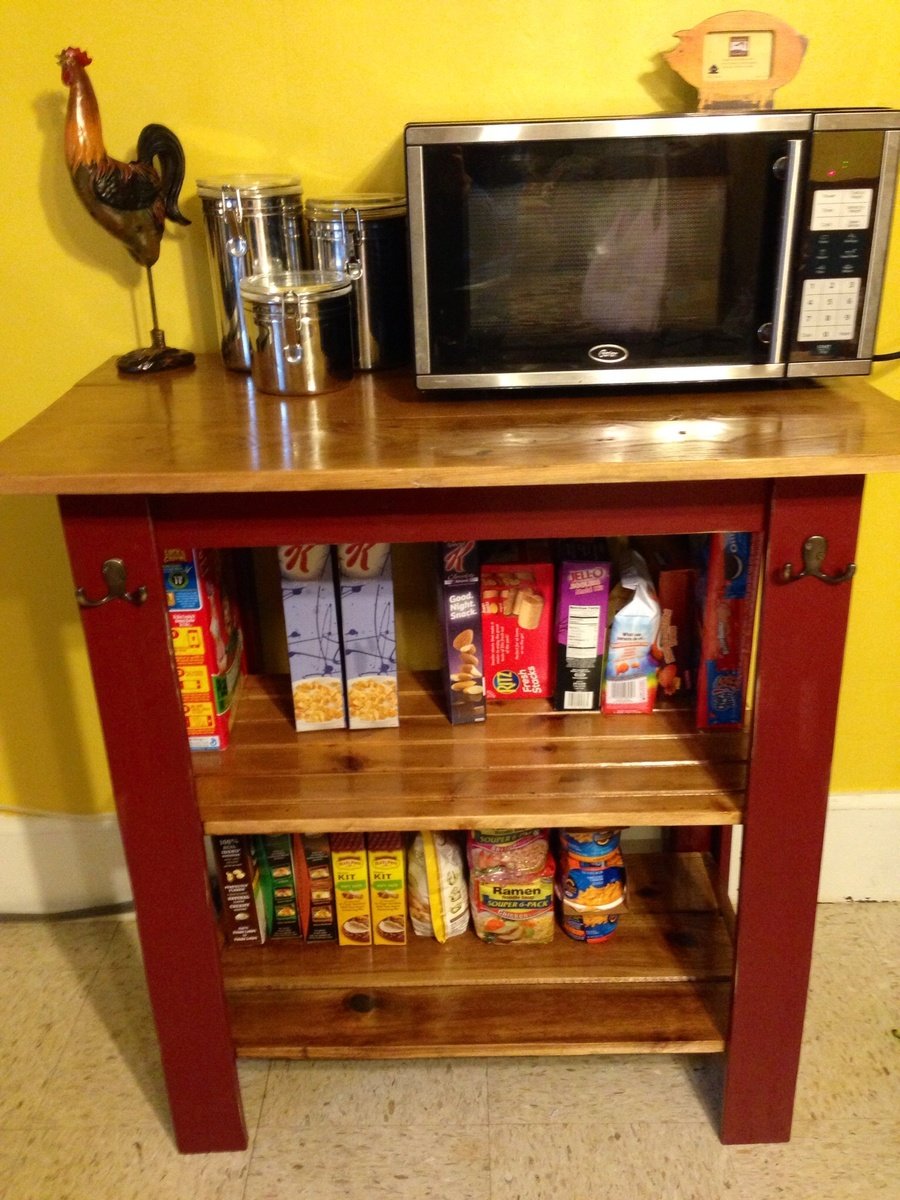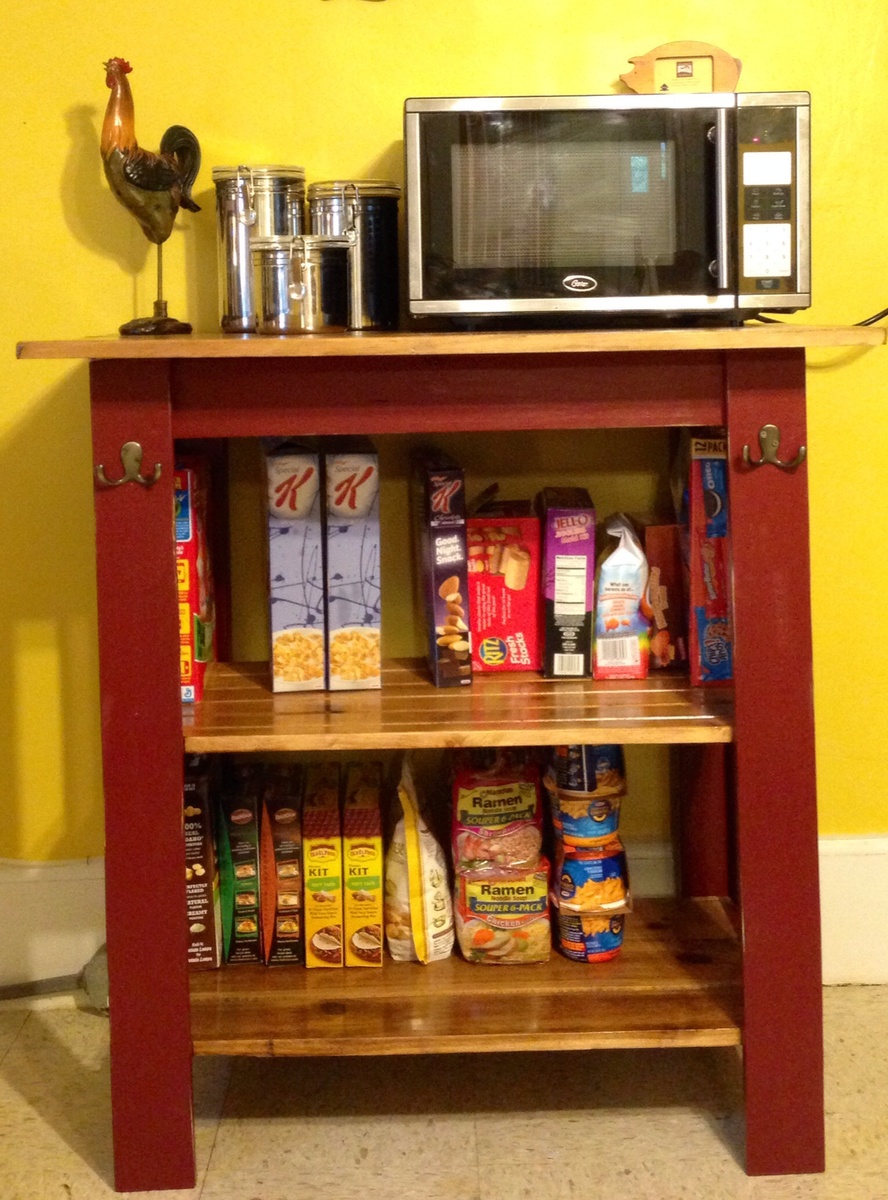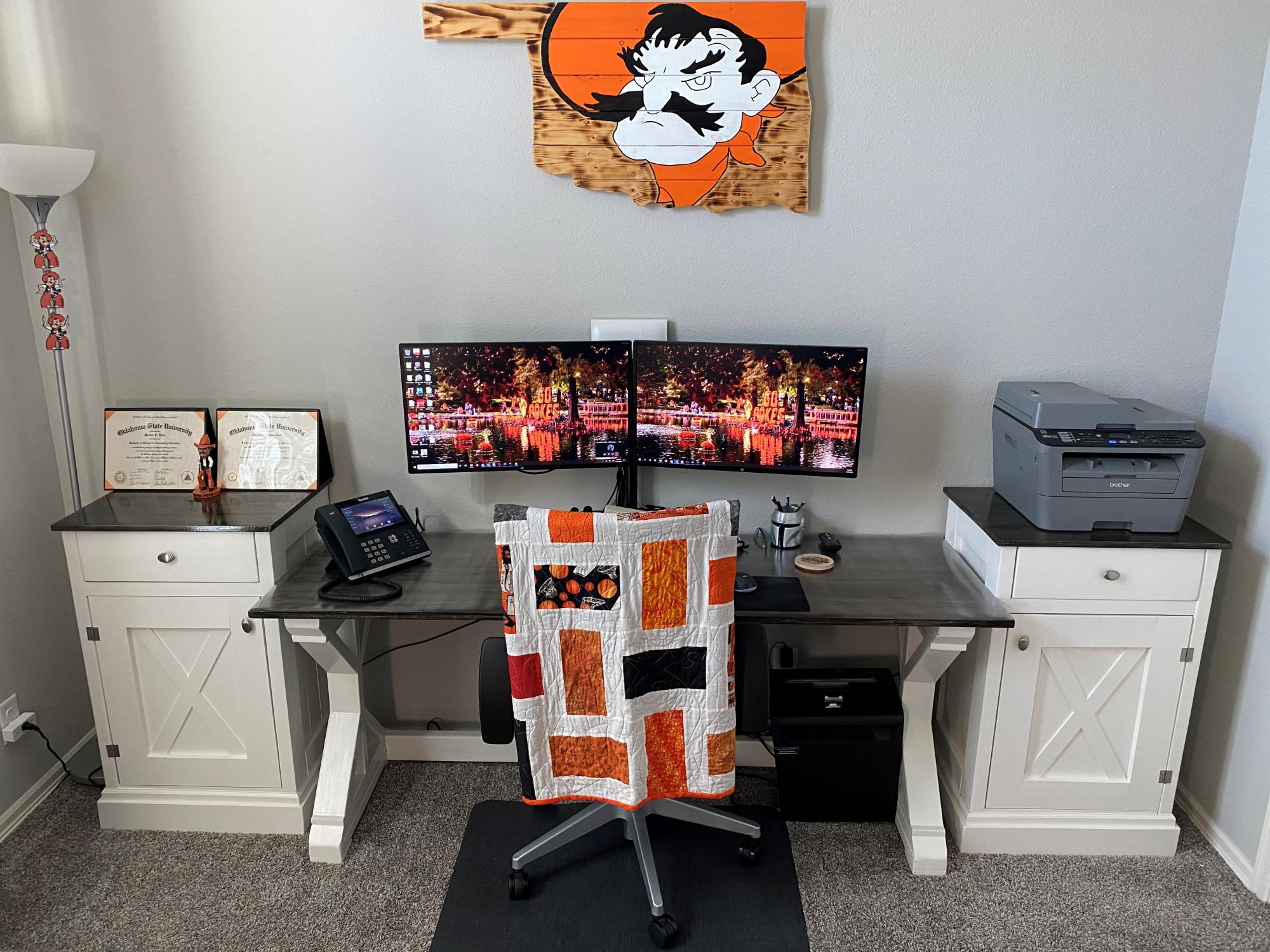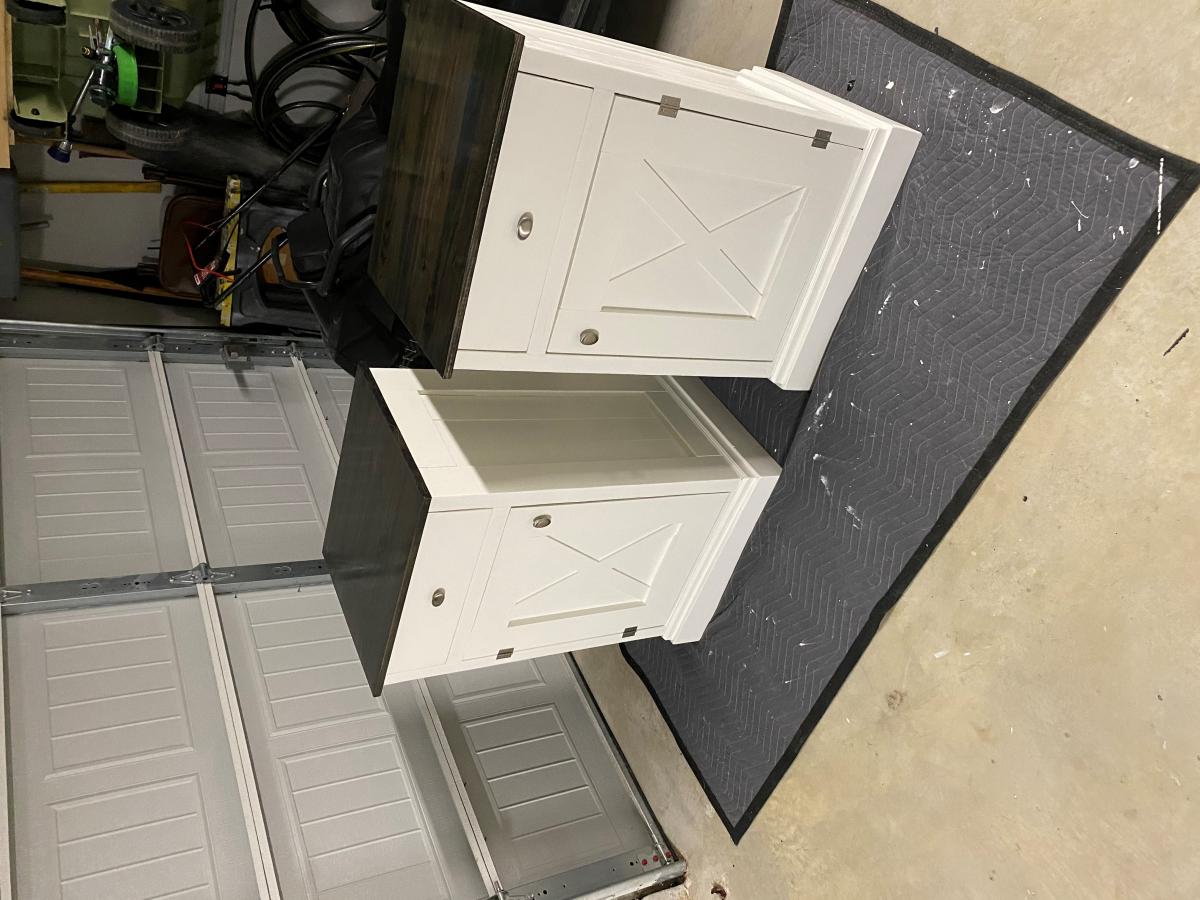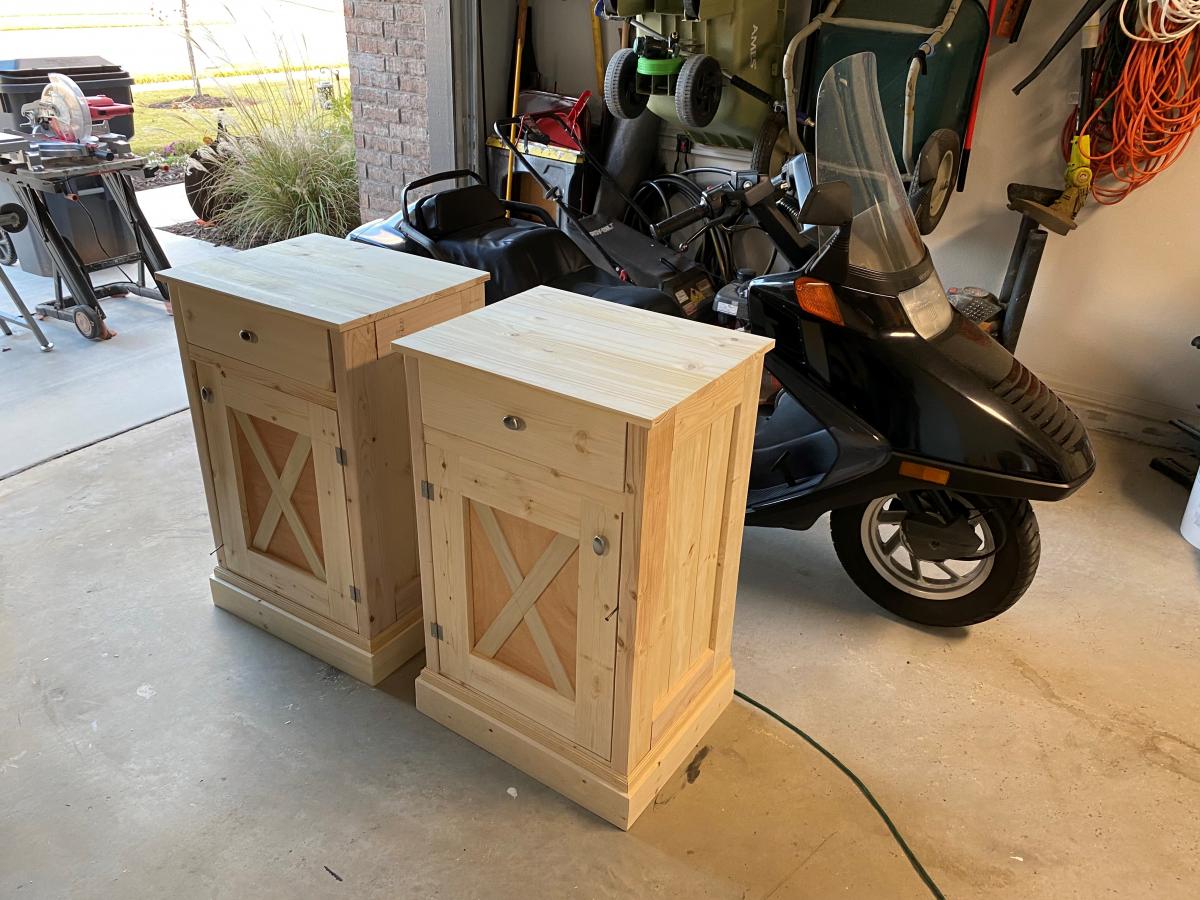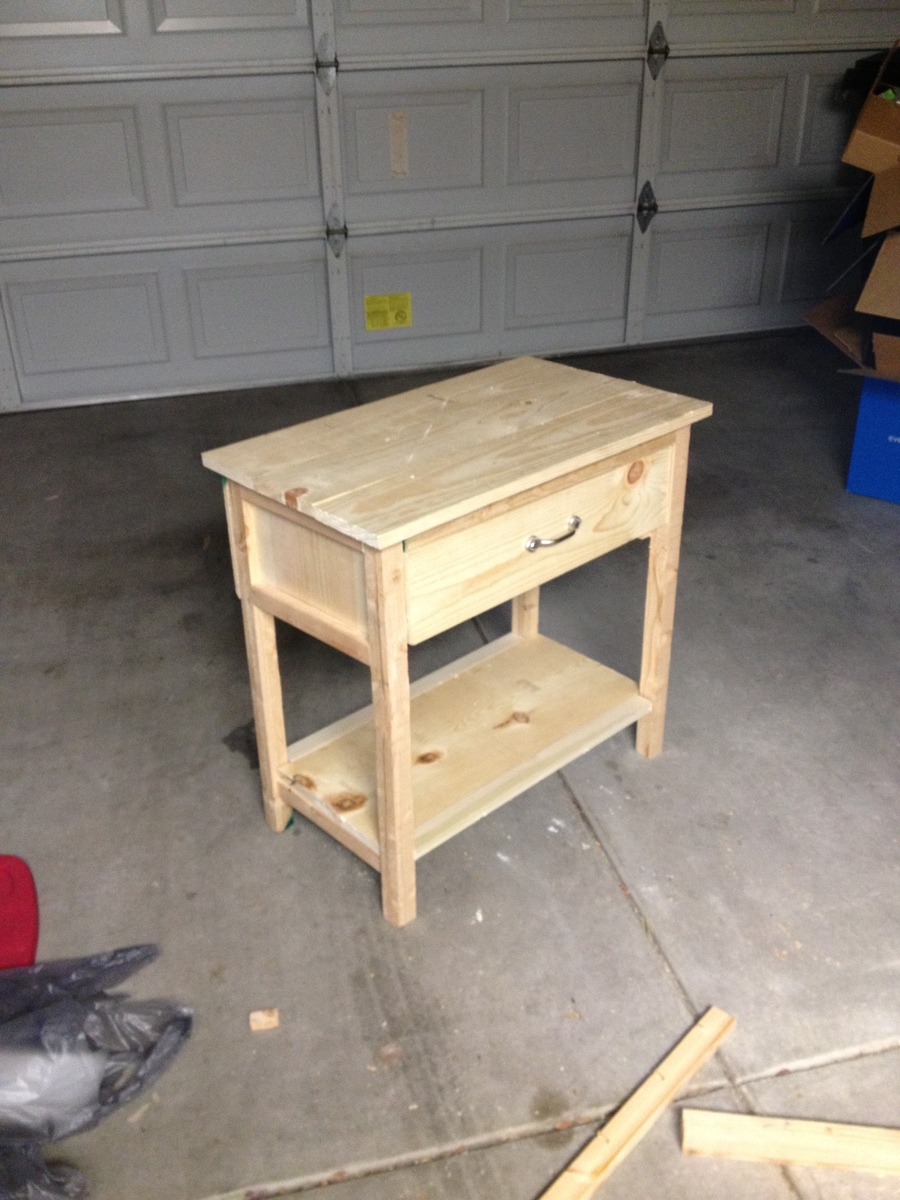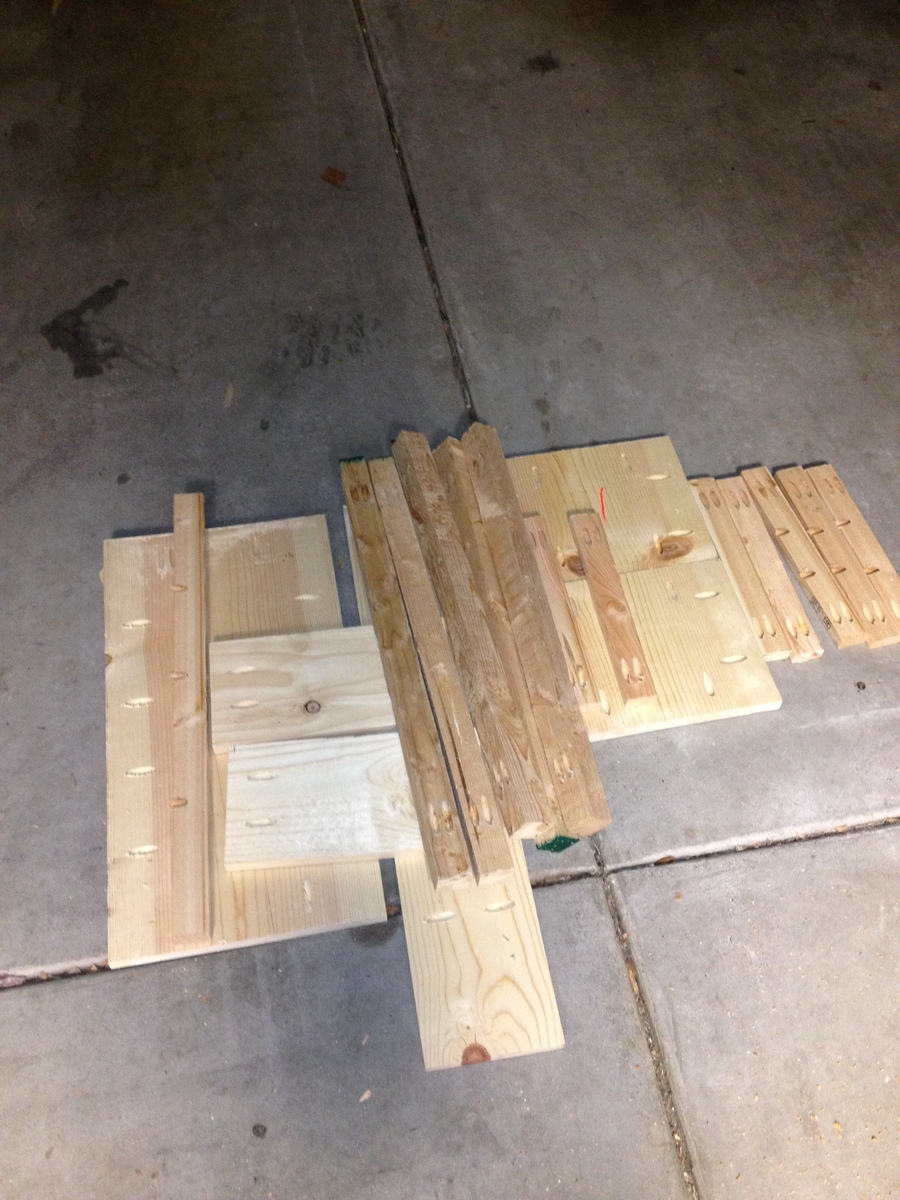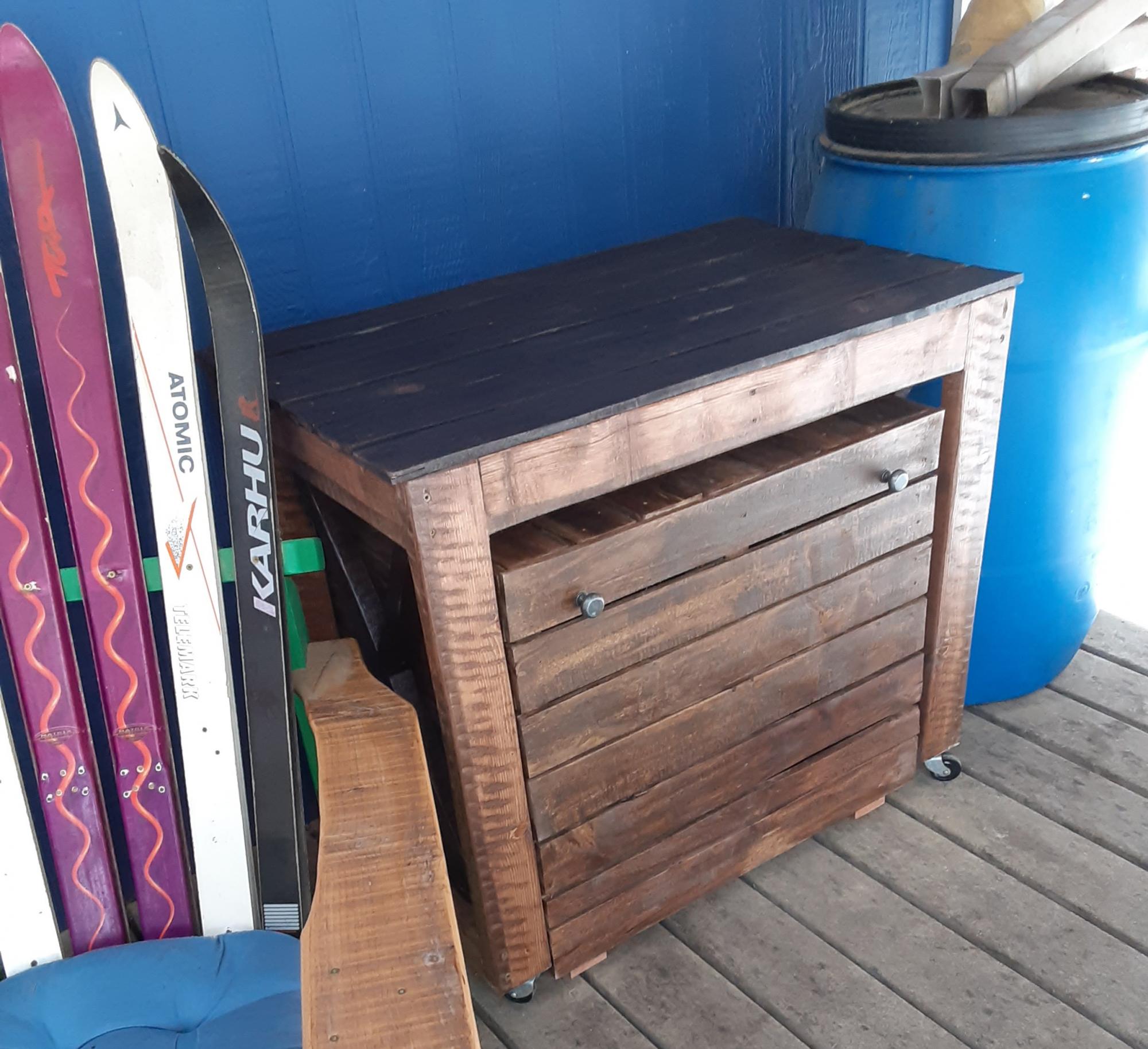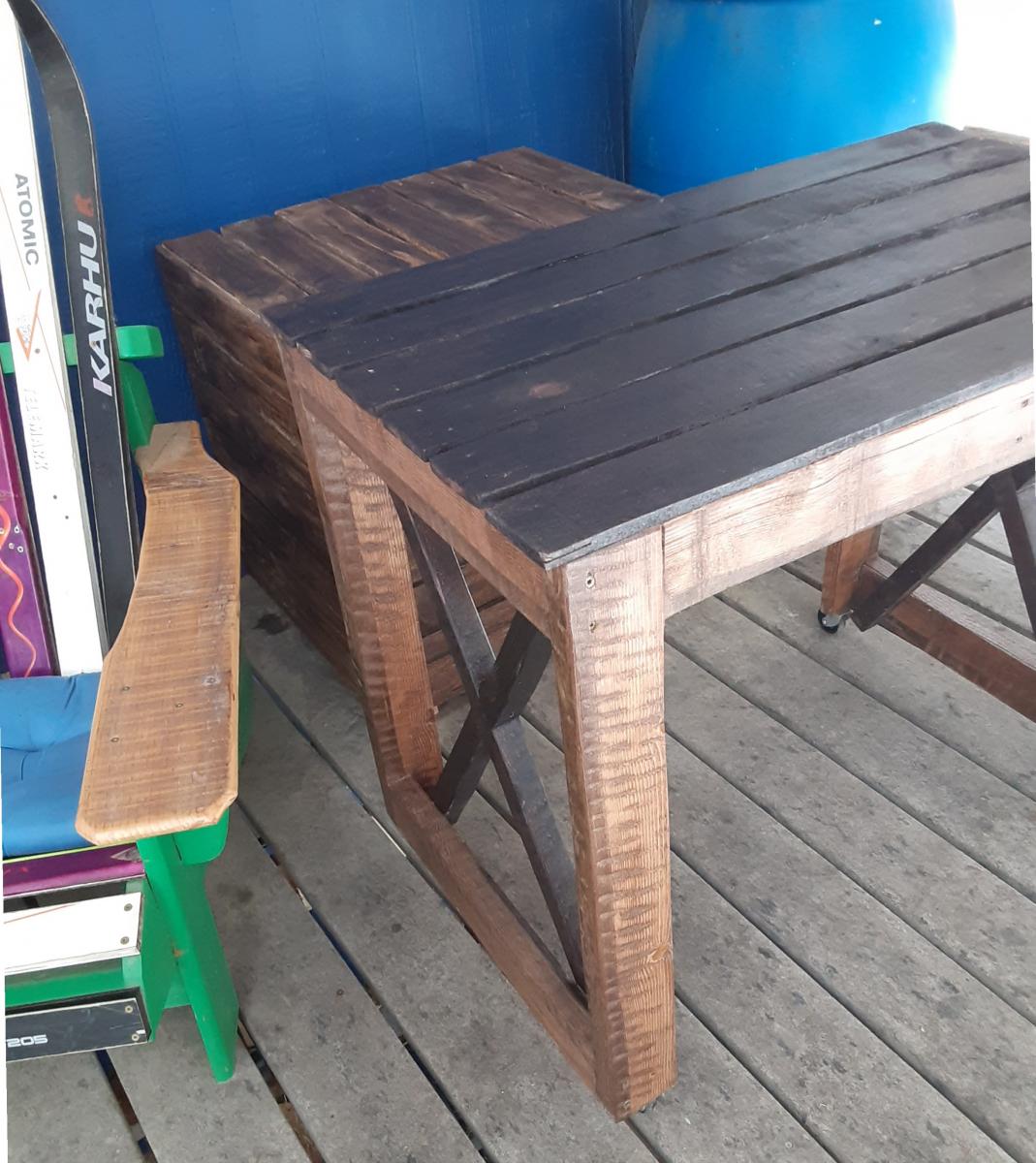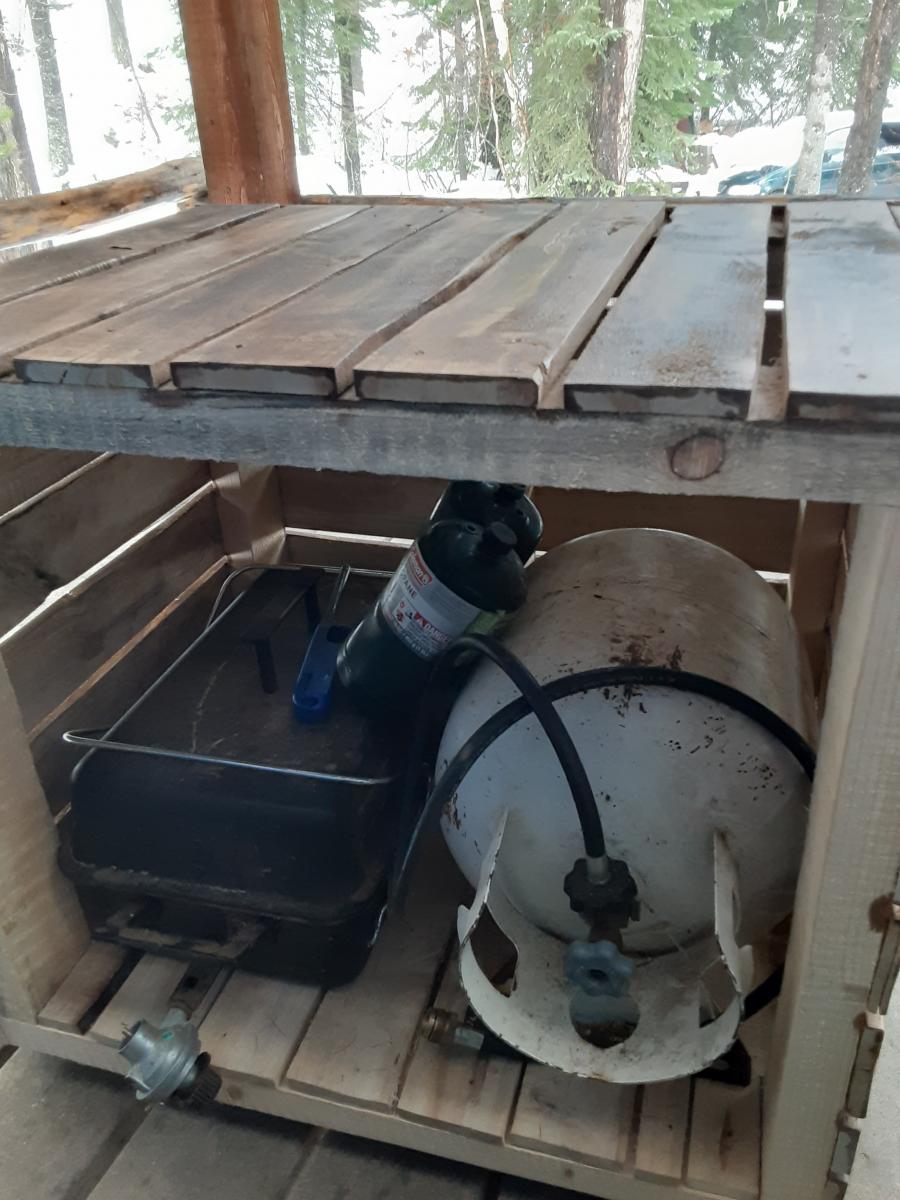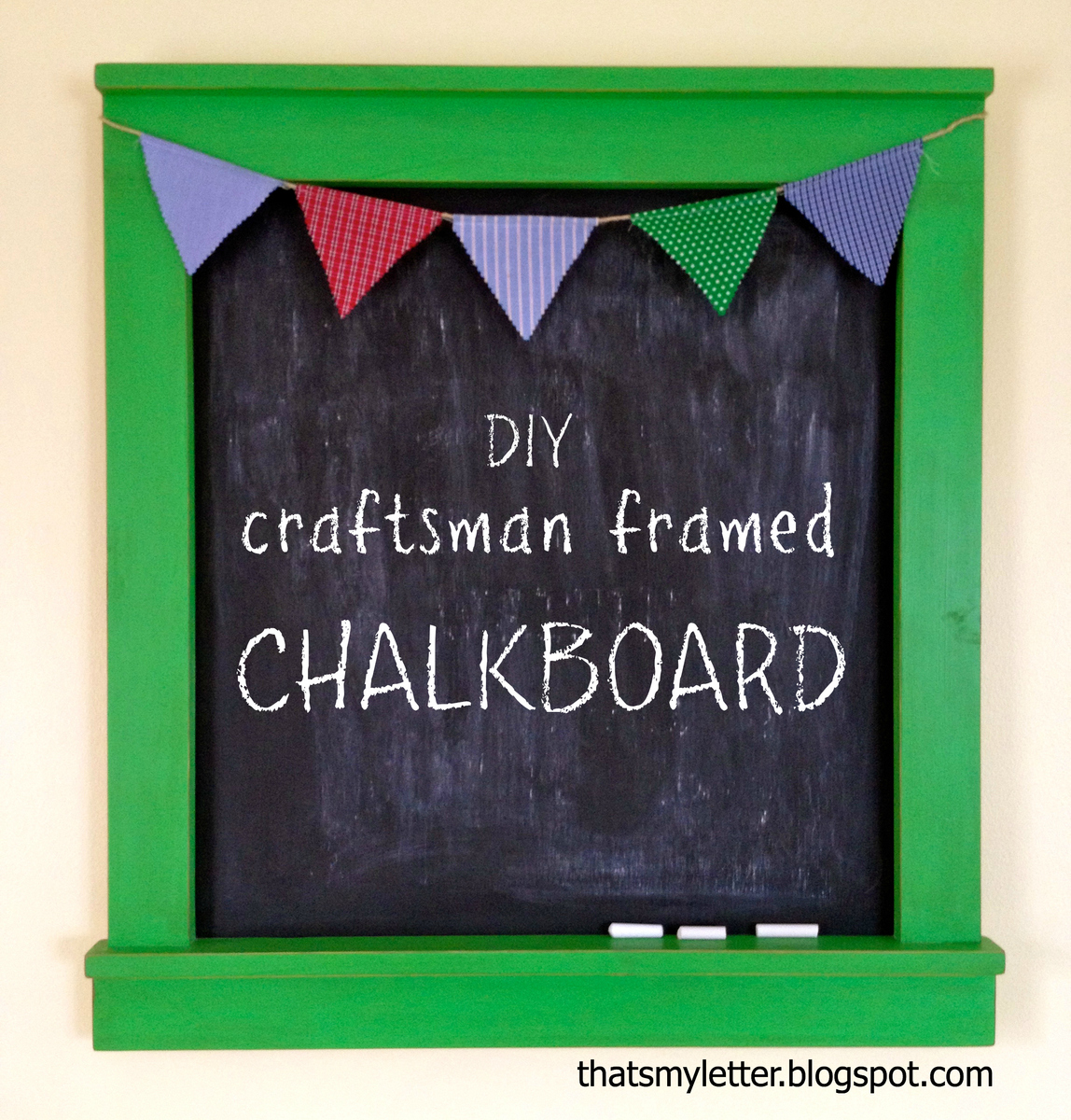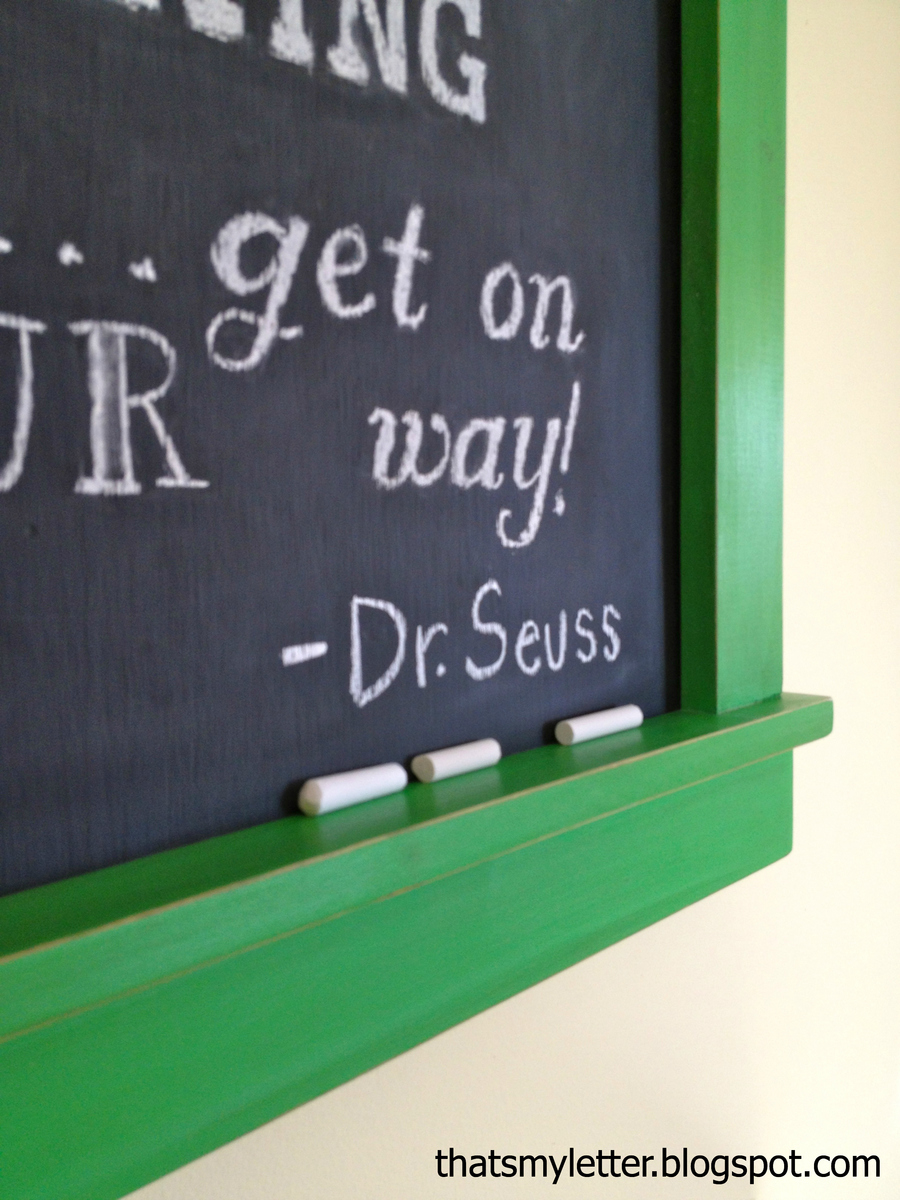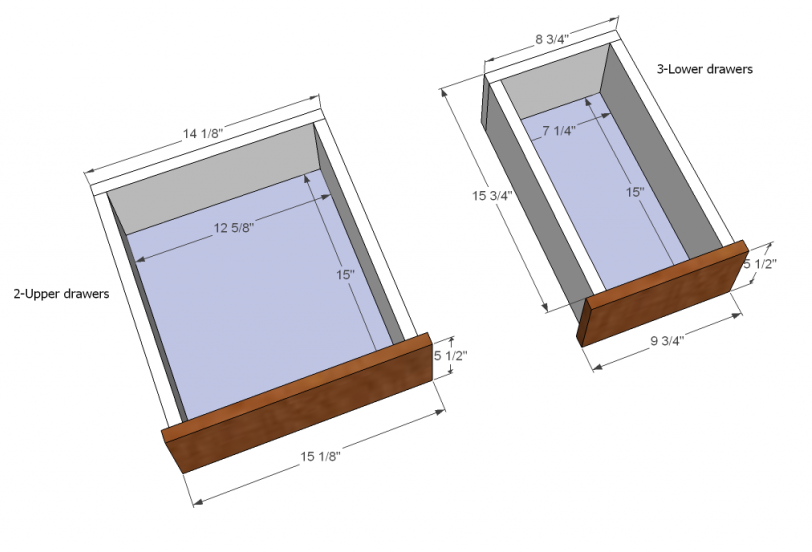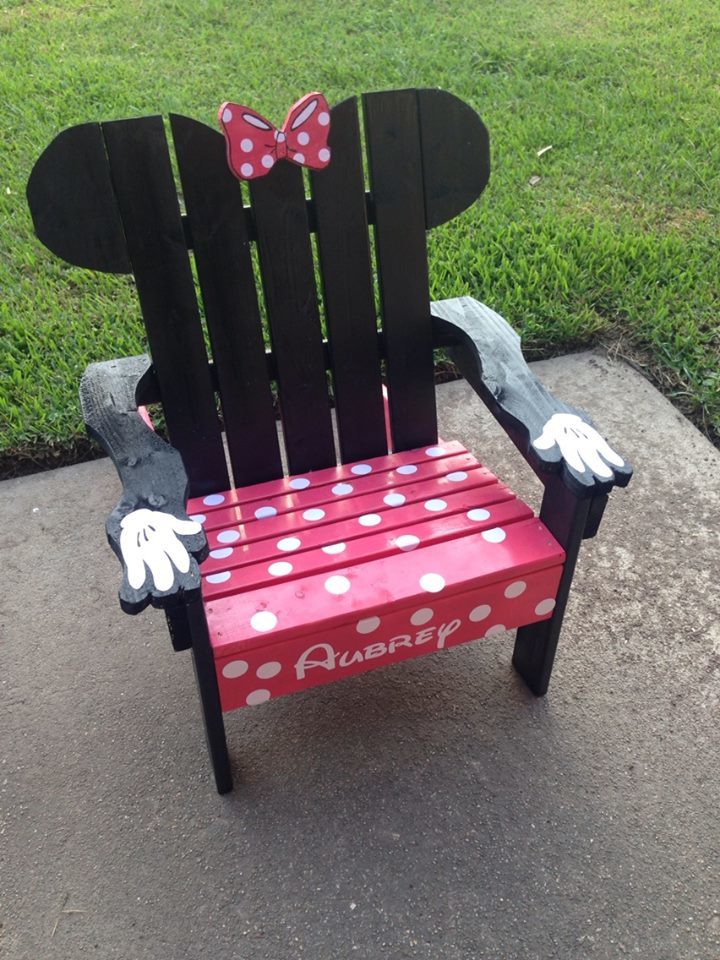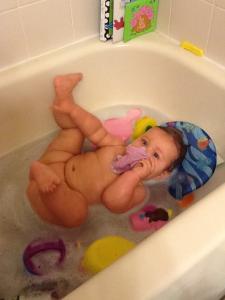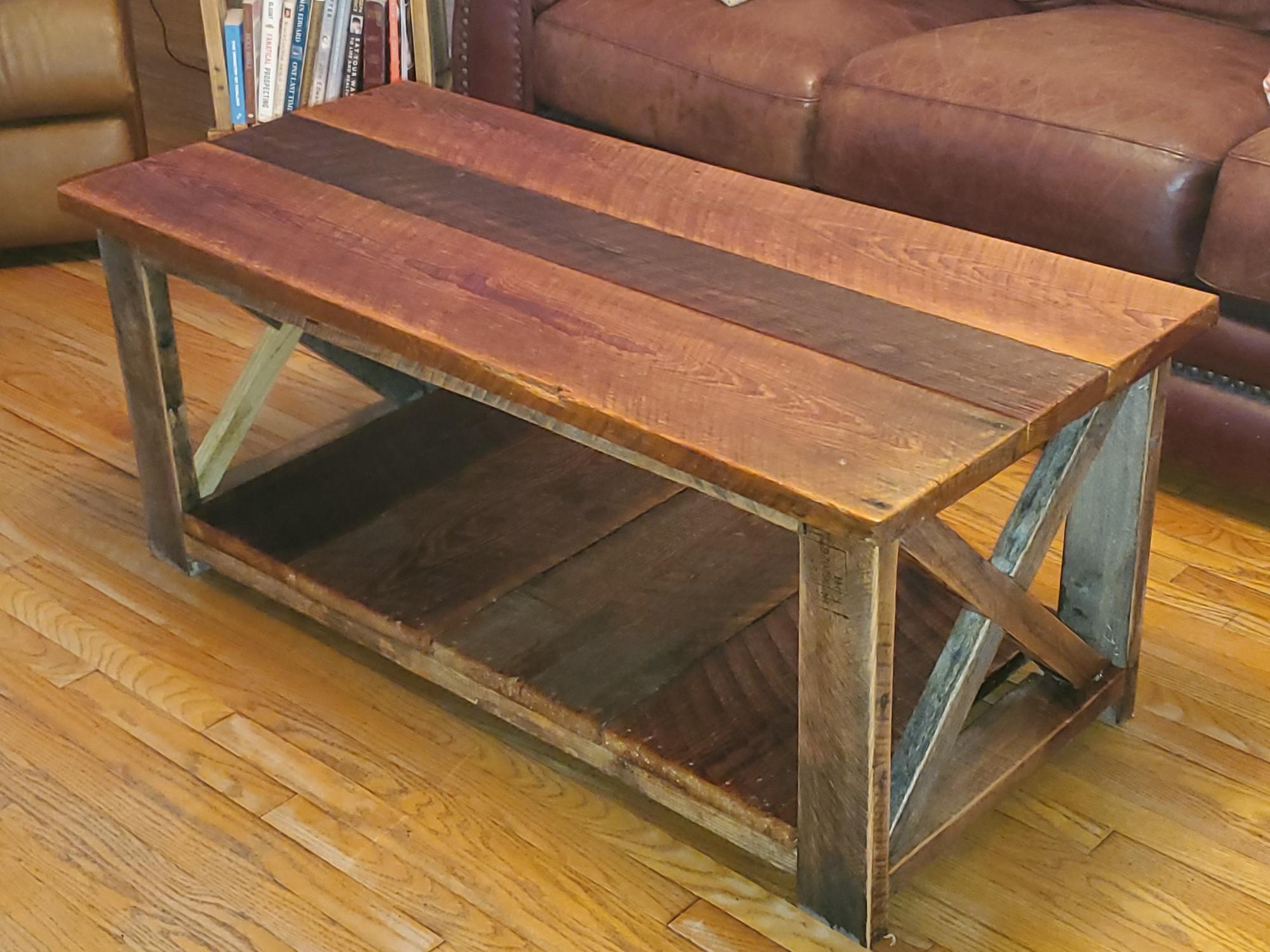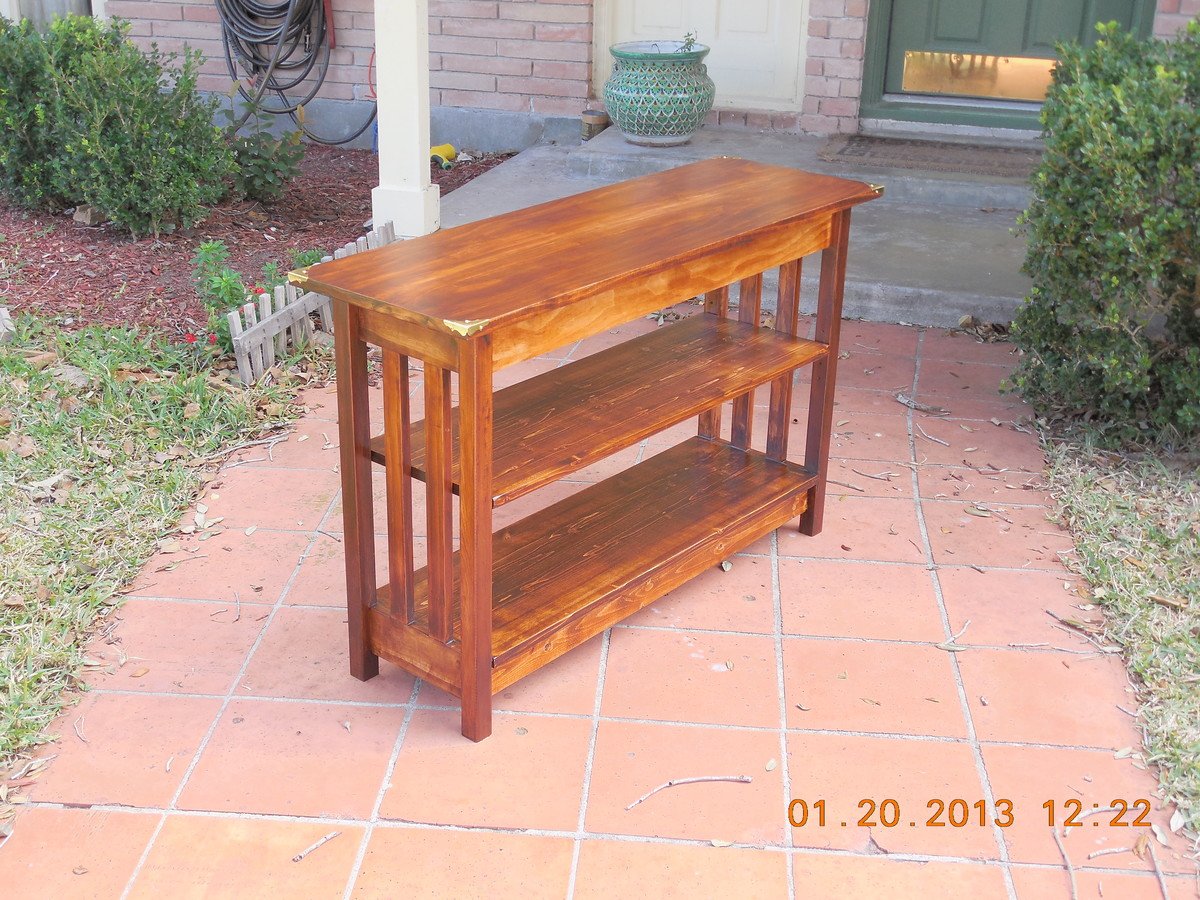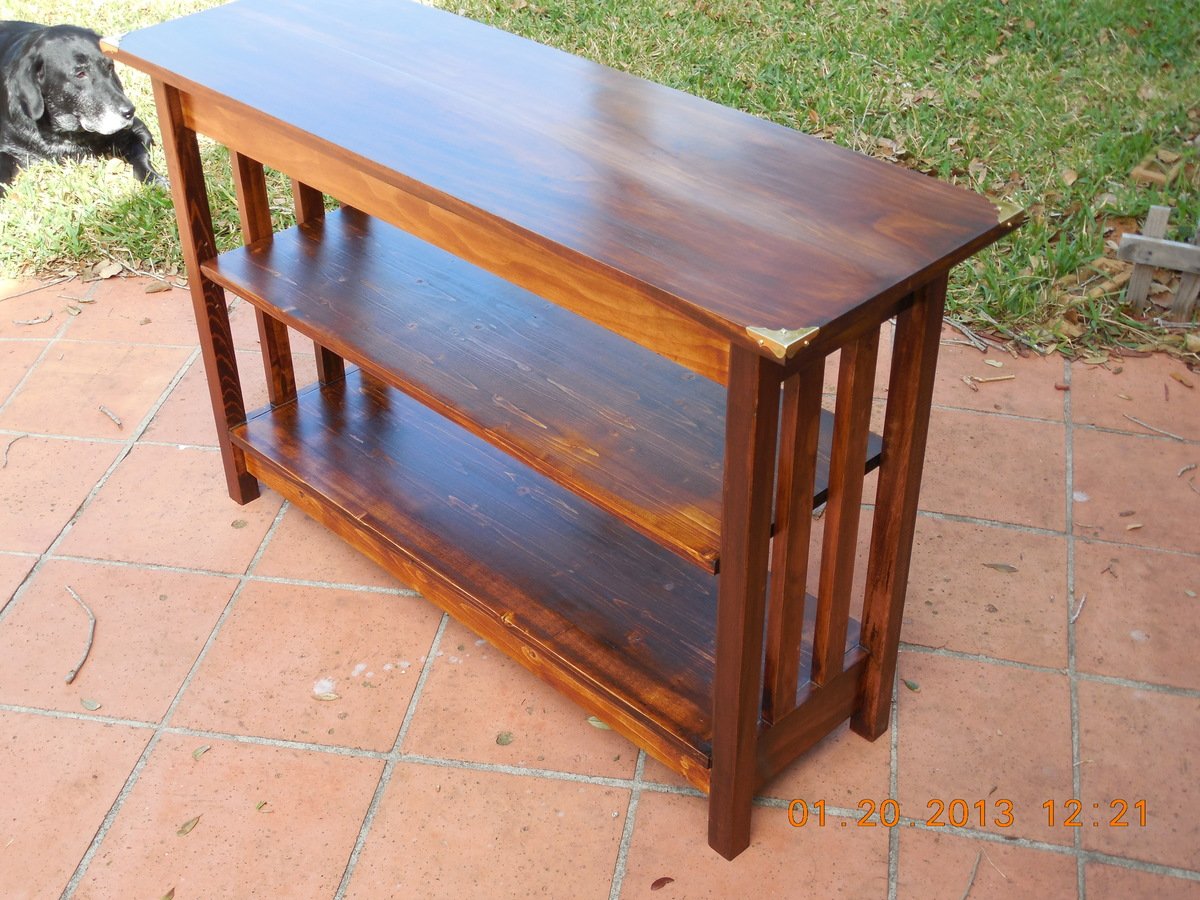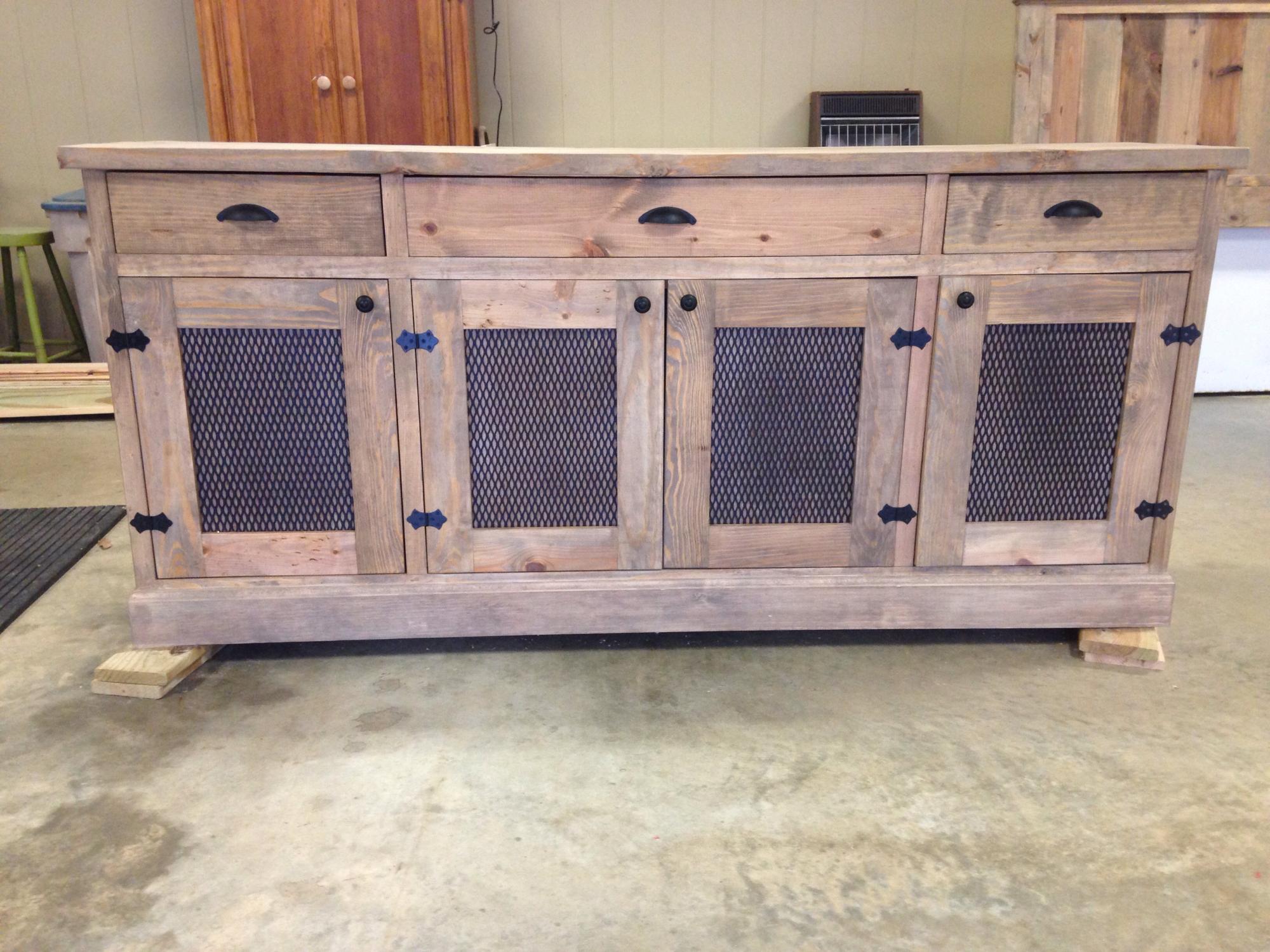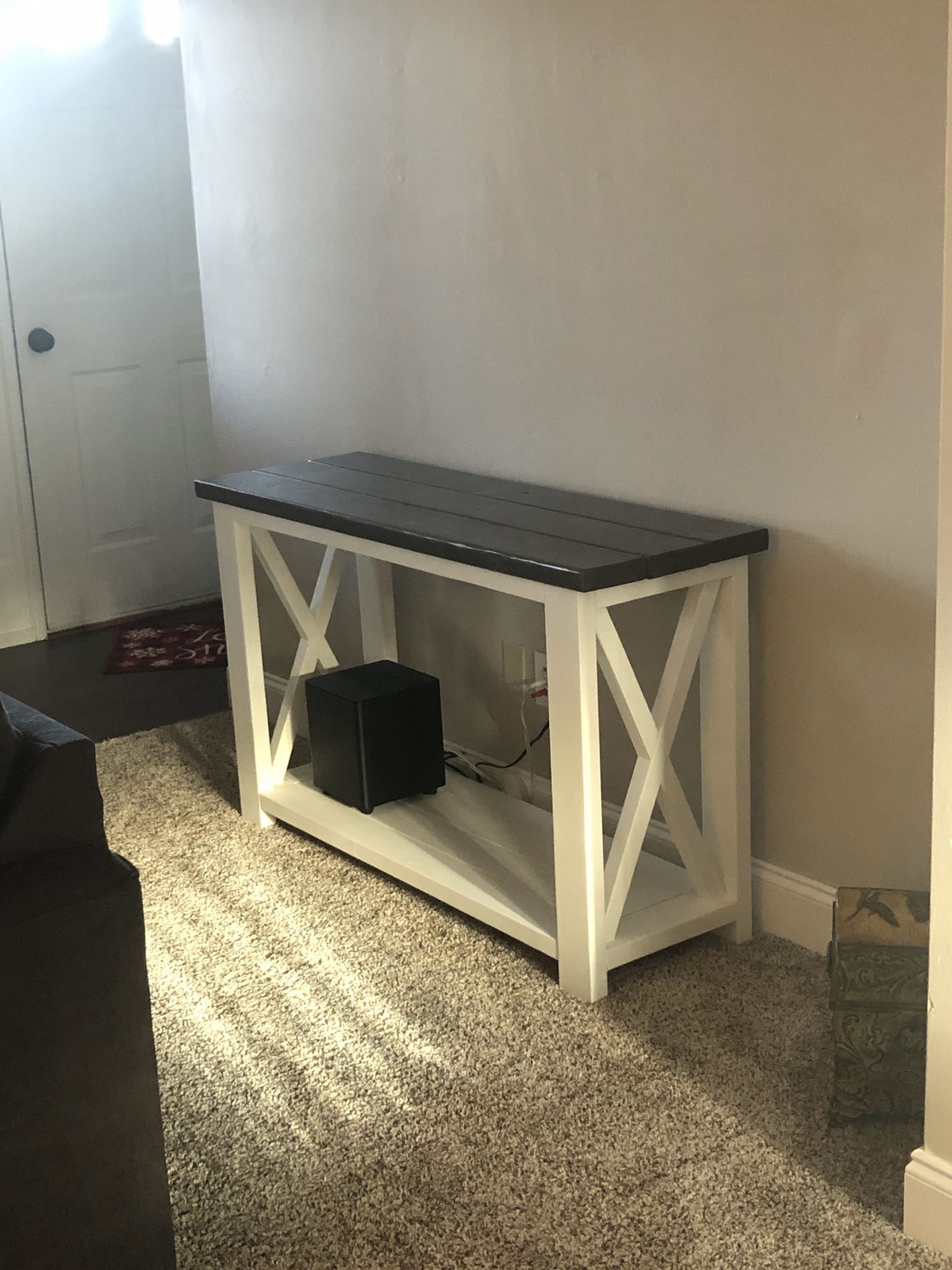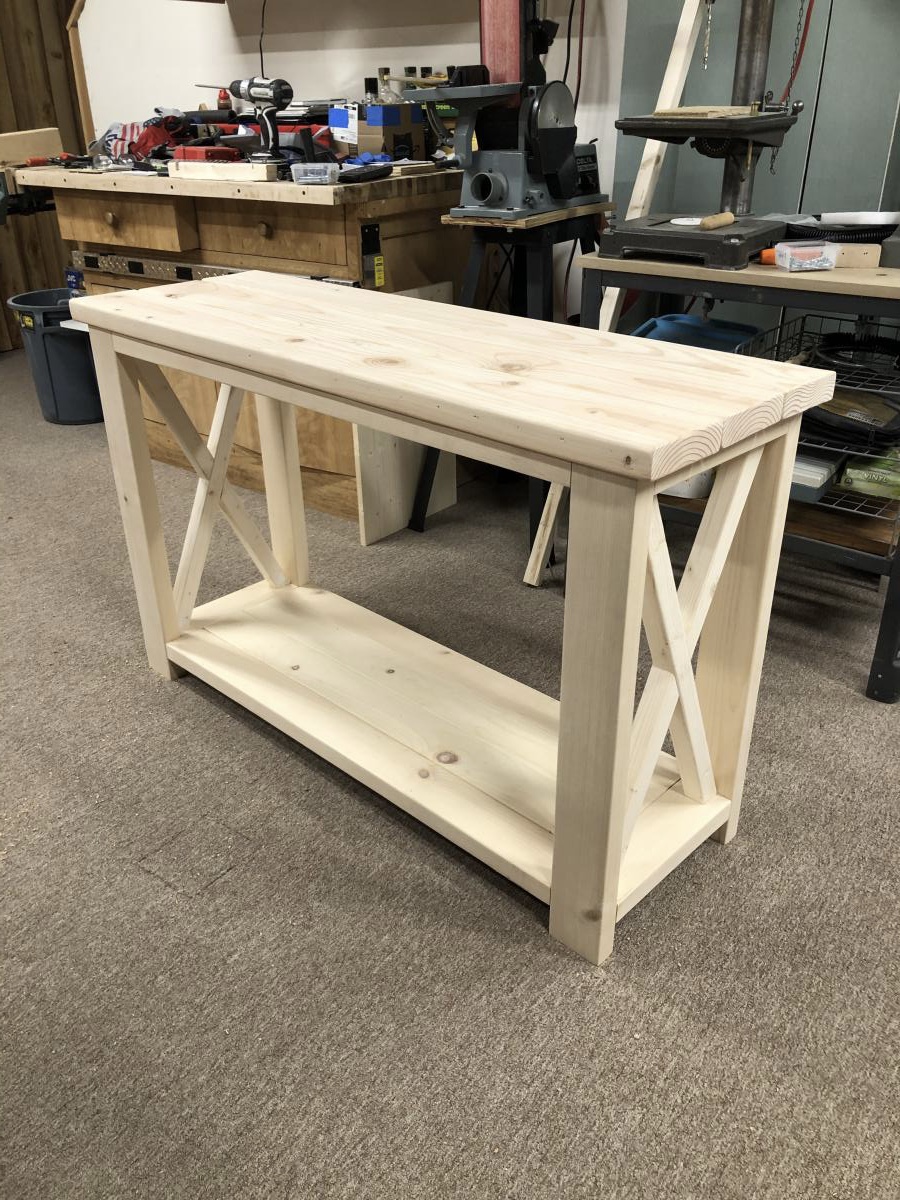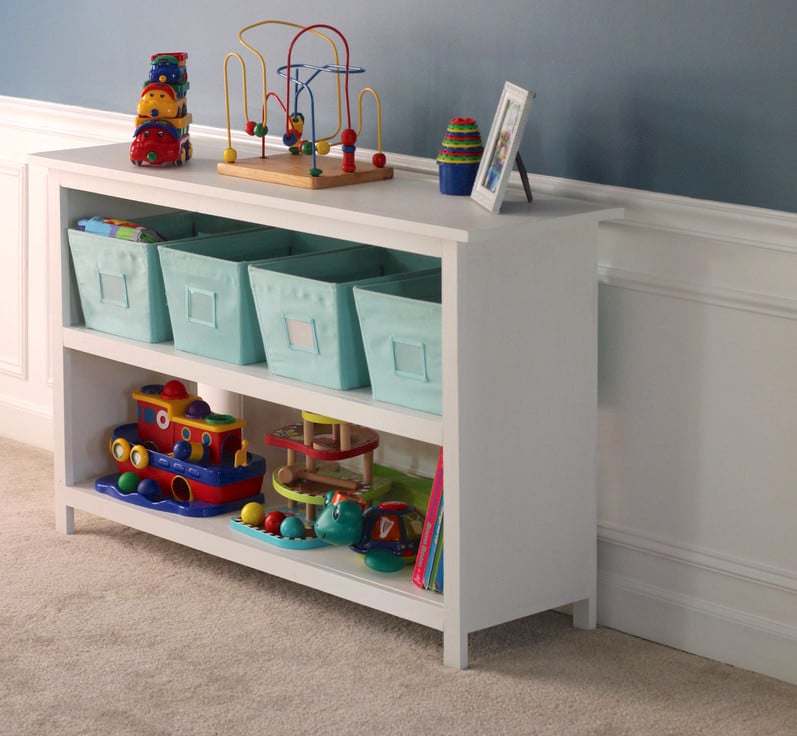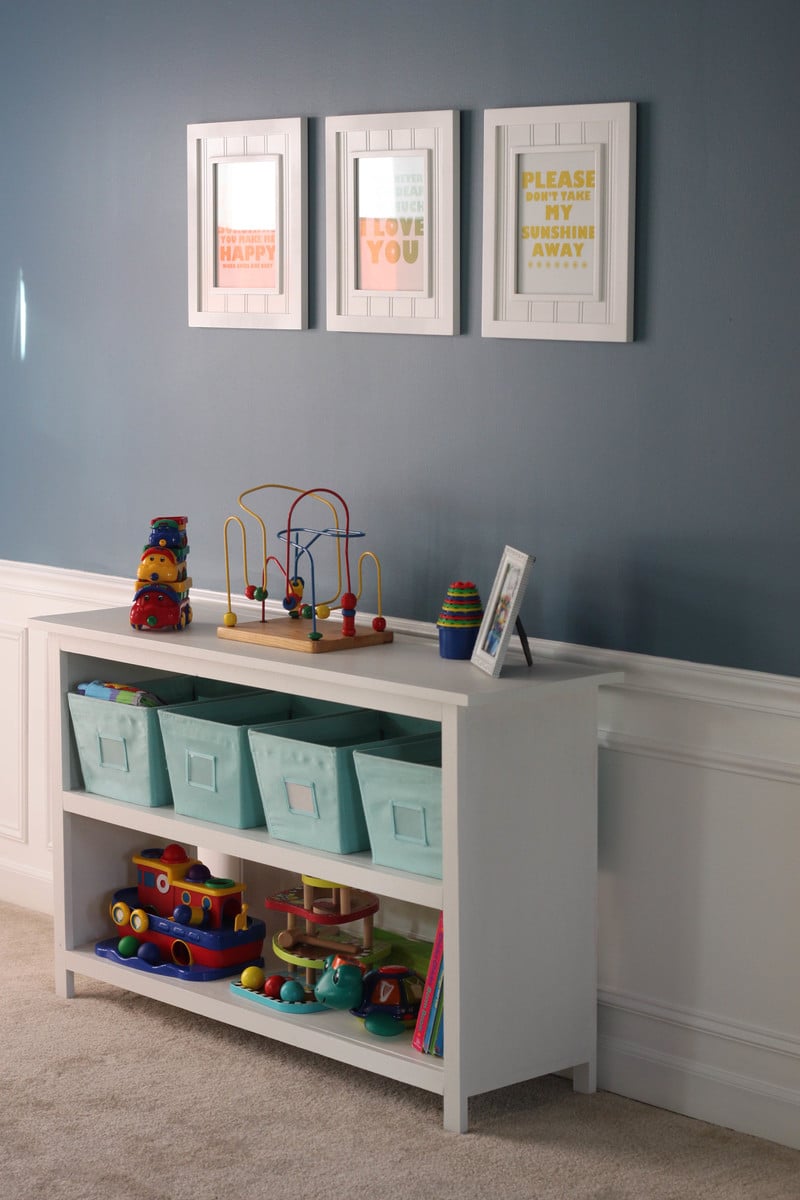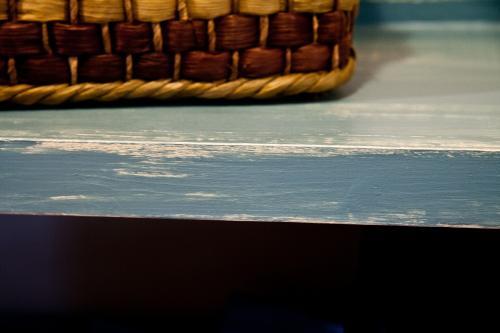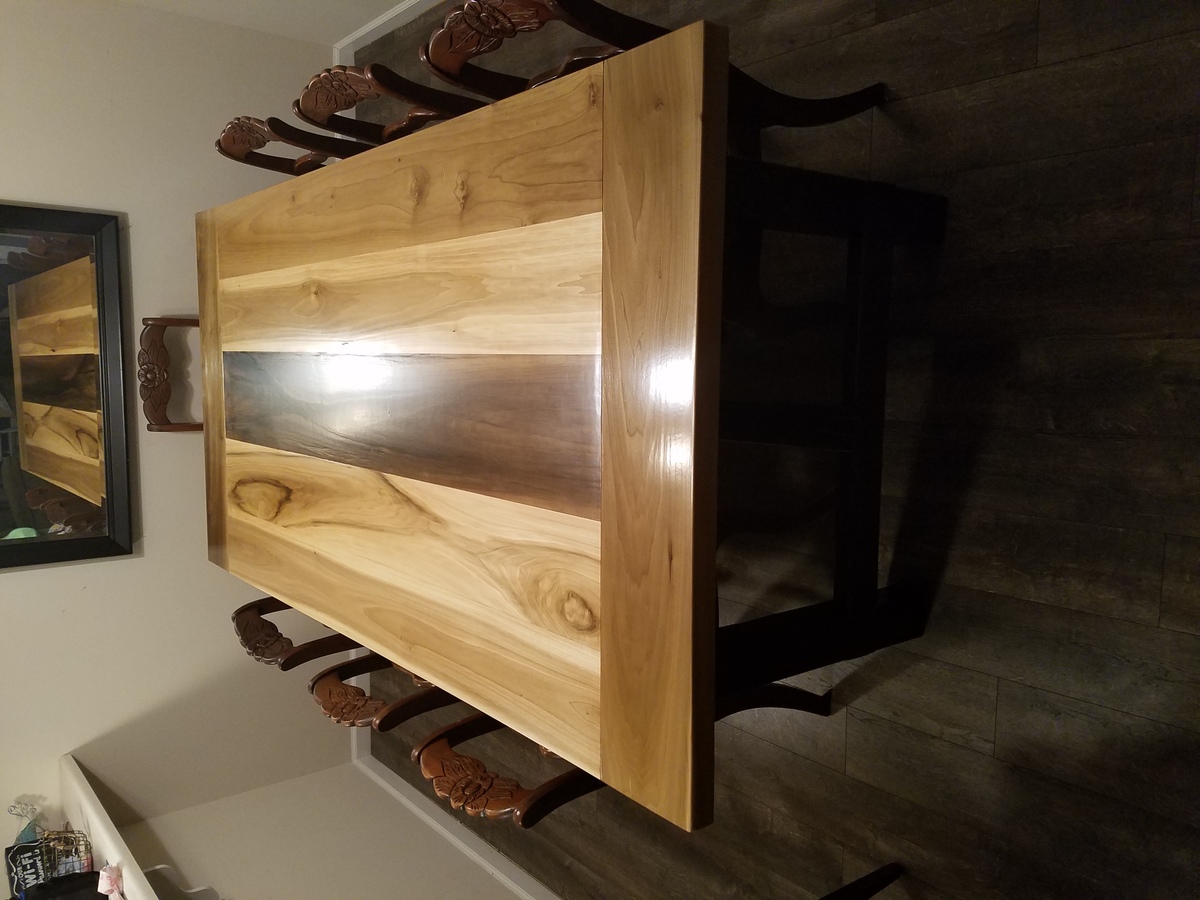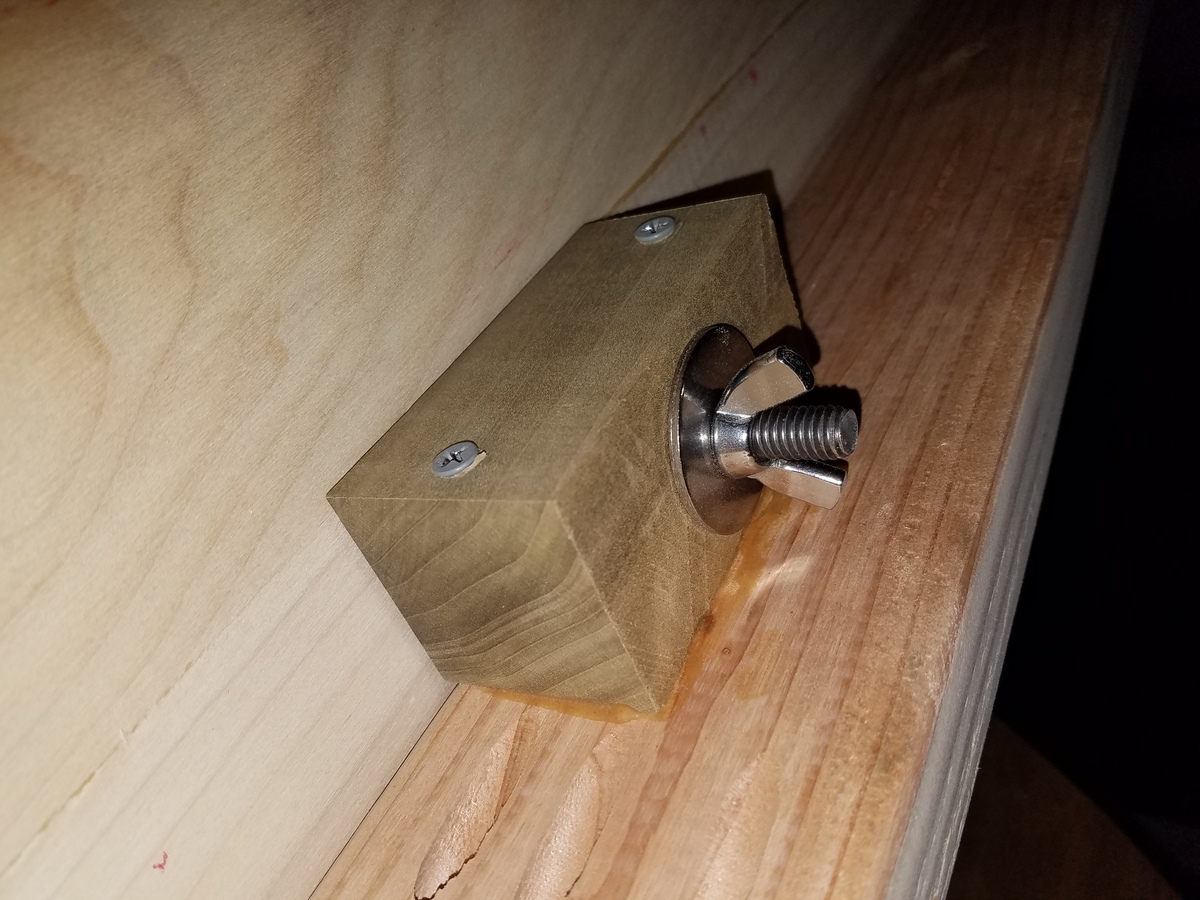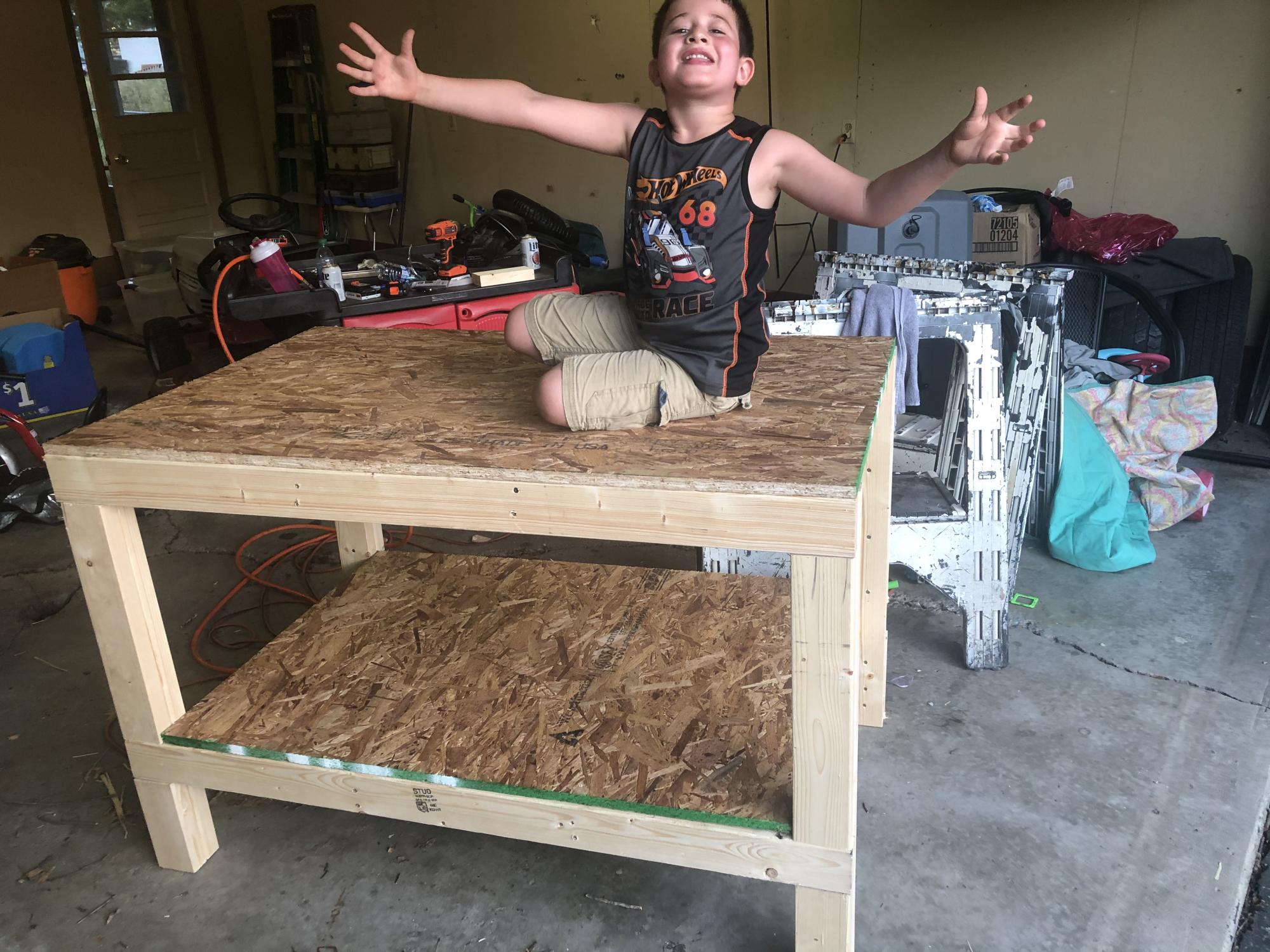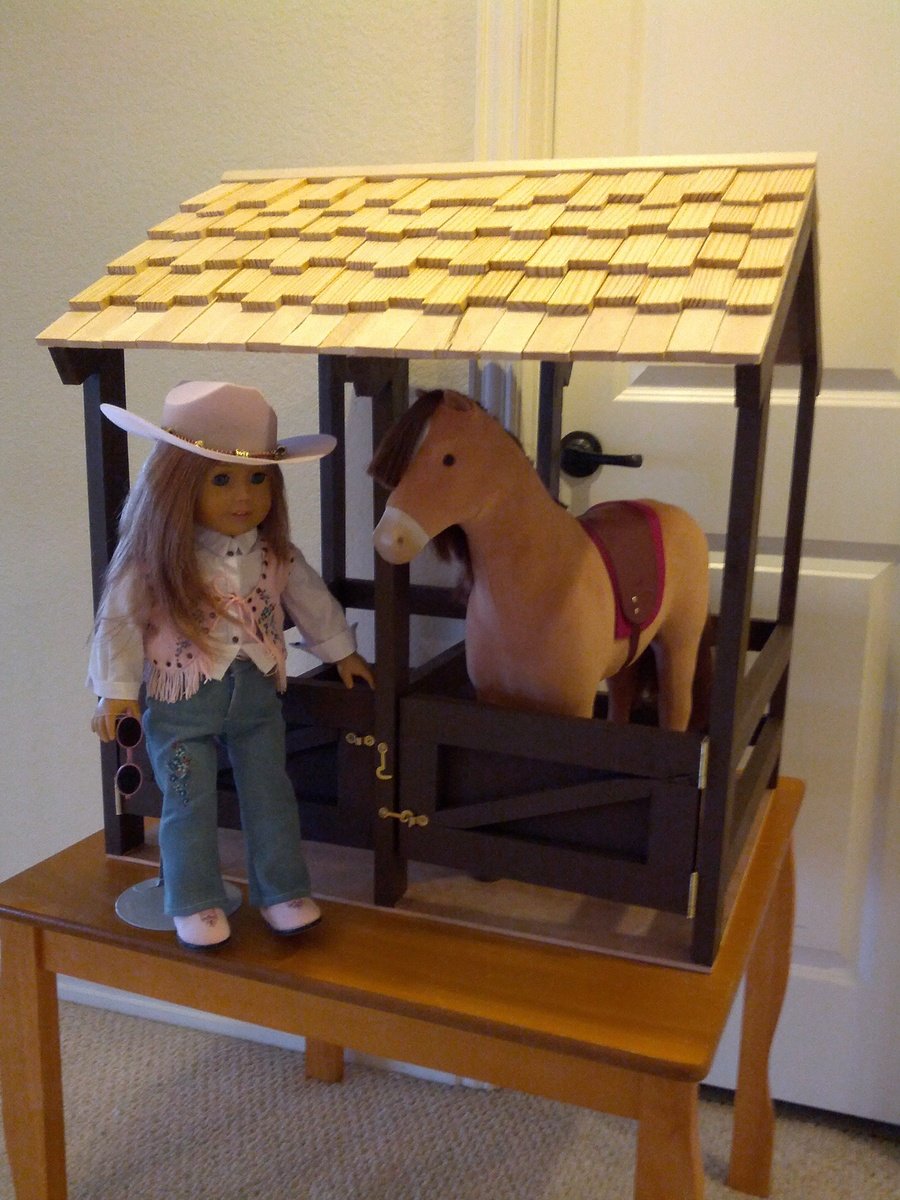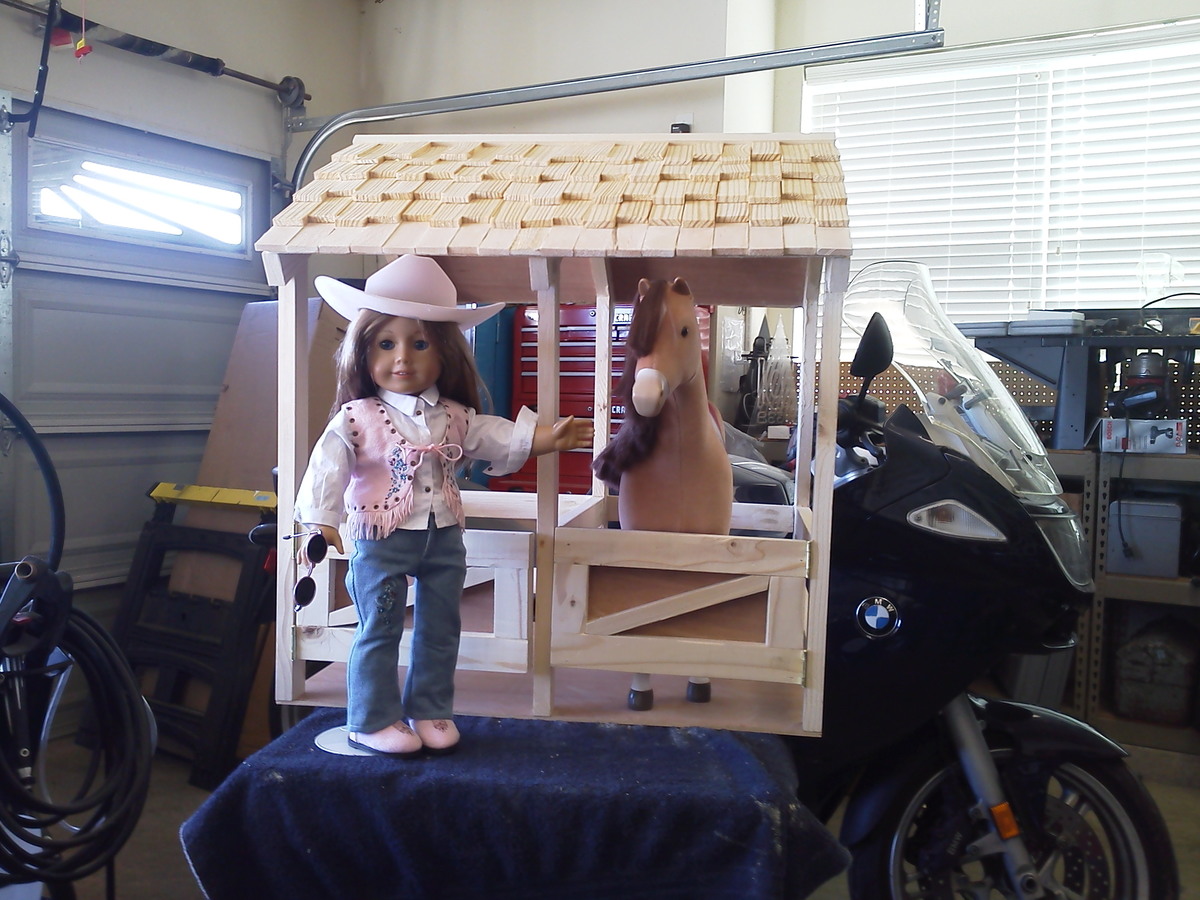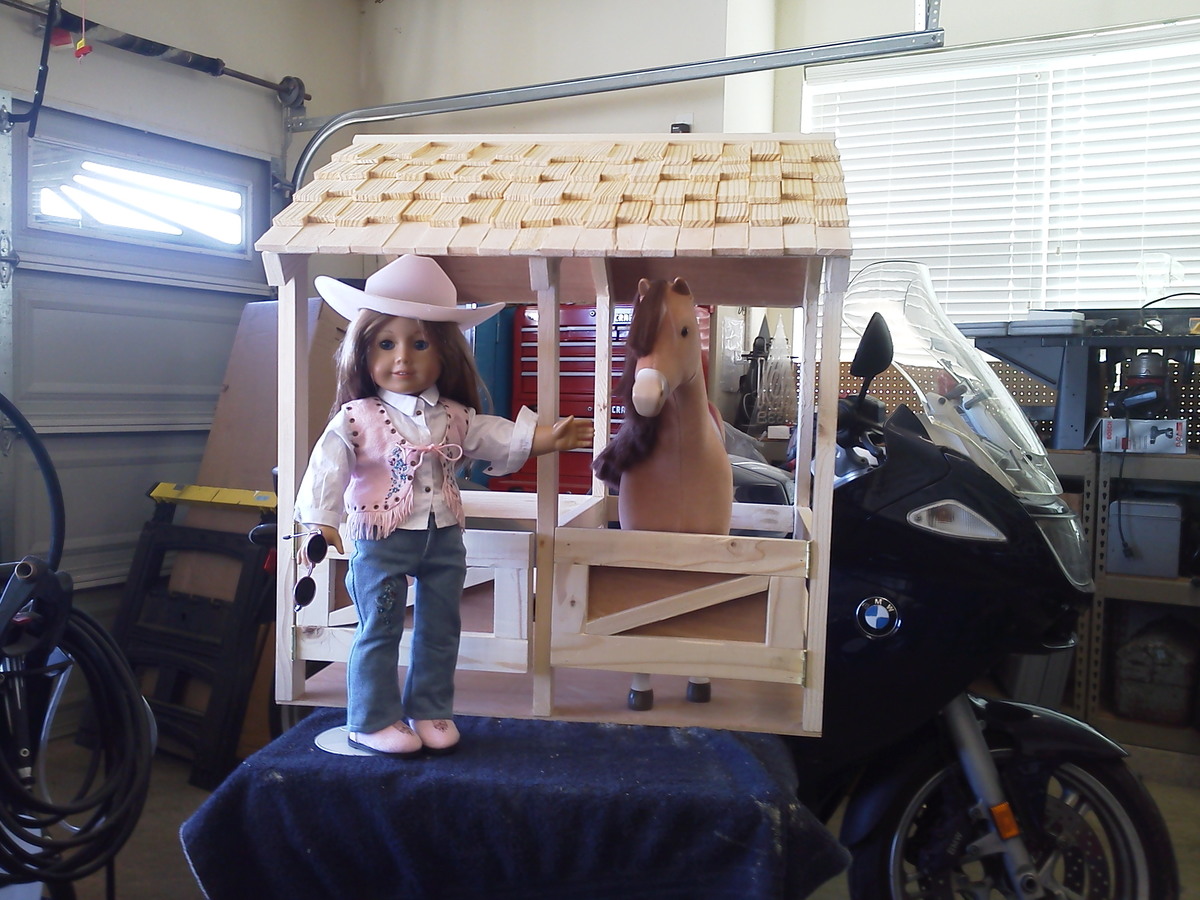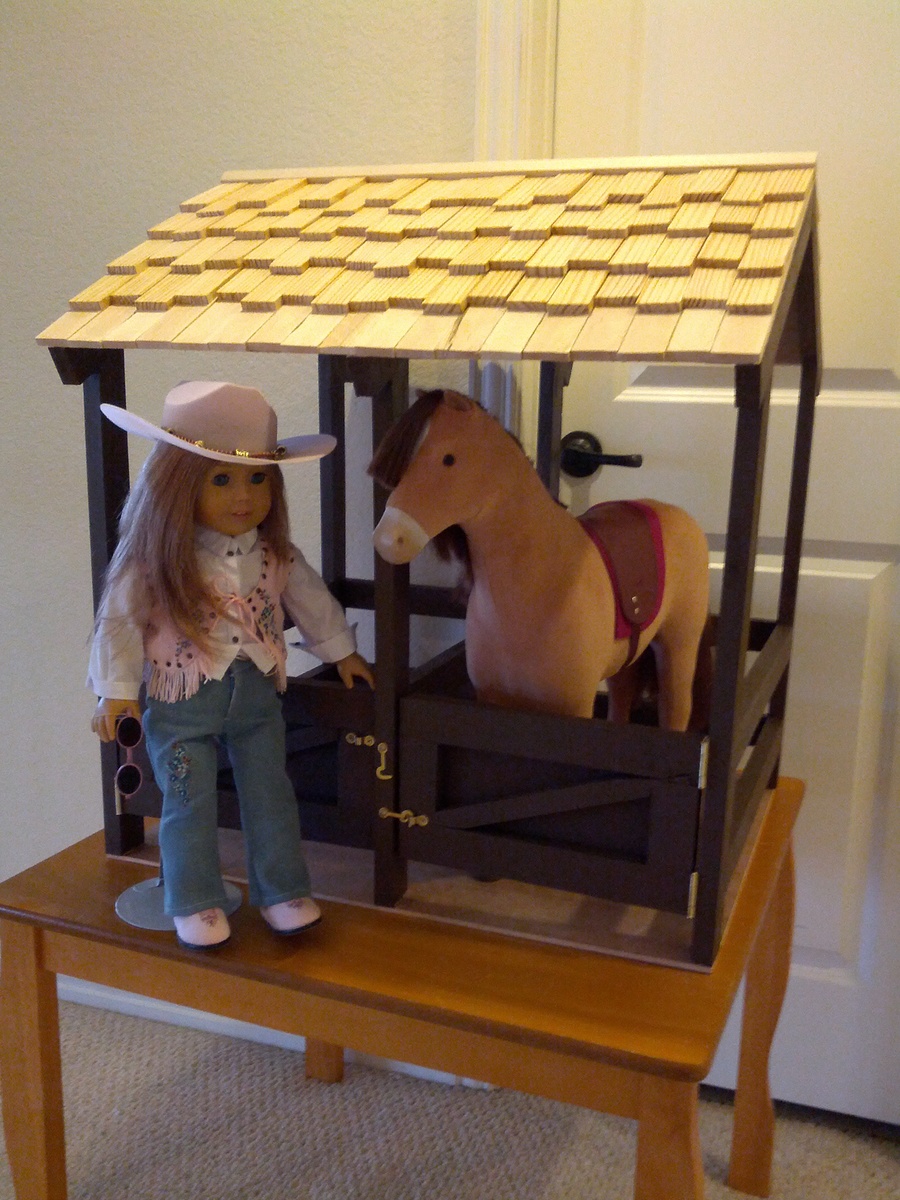Turned Leg Farmhouse Table 6' x 3'
My husband and I decided to tackle this as our second woodworking project together. We have been wanting a larger dining table that would comfortably seat 6 people and easily squeeze in 8 if needed. We decided to build Ana's turned leg farmhouse table, adjusting the dimensions and choosing slightly different legs. These variations better suited our dining room space.
We purchased the "Modified English Country Dining Table Legs" in soft maple and 3 1/2" diameter from Osbourne Wood Products, which totaled $136. The rest of the lumber was made up of pine boards from Lowe's, which totaled around $40-$50. When assembling the 1 x 10 boards to make the top, we used a biscuit joiner to help our slightly bowed boards stay flat. Once the table was fully assembled, we painted the base in Lowe's Antique White (satin finish) and stained the top using Minwax's Special Walnut, then applied at least two coats of Minwax's polyurethane in satin finish.
We made a couple of mistakes along the way which actually worked out for the best, giving the table some rustic character. Being relatively new to woodworking, we neglected to thoroughly wipe the 1 x 10 boards of all wood glue before the glue dried, making it difficult to remove later with sanding. Some wood glue remained, which showed up later once boards were stained. We ended up liking how this turned out to give it some charm and more of that 'handmade' look.
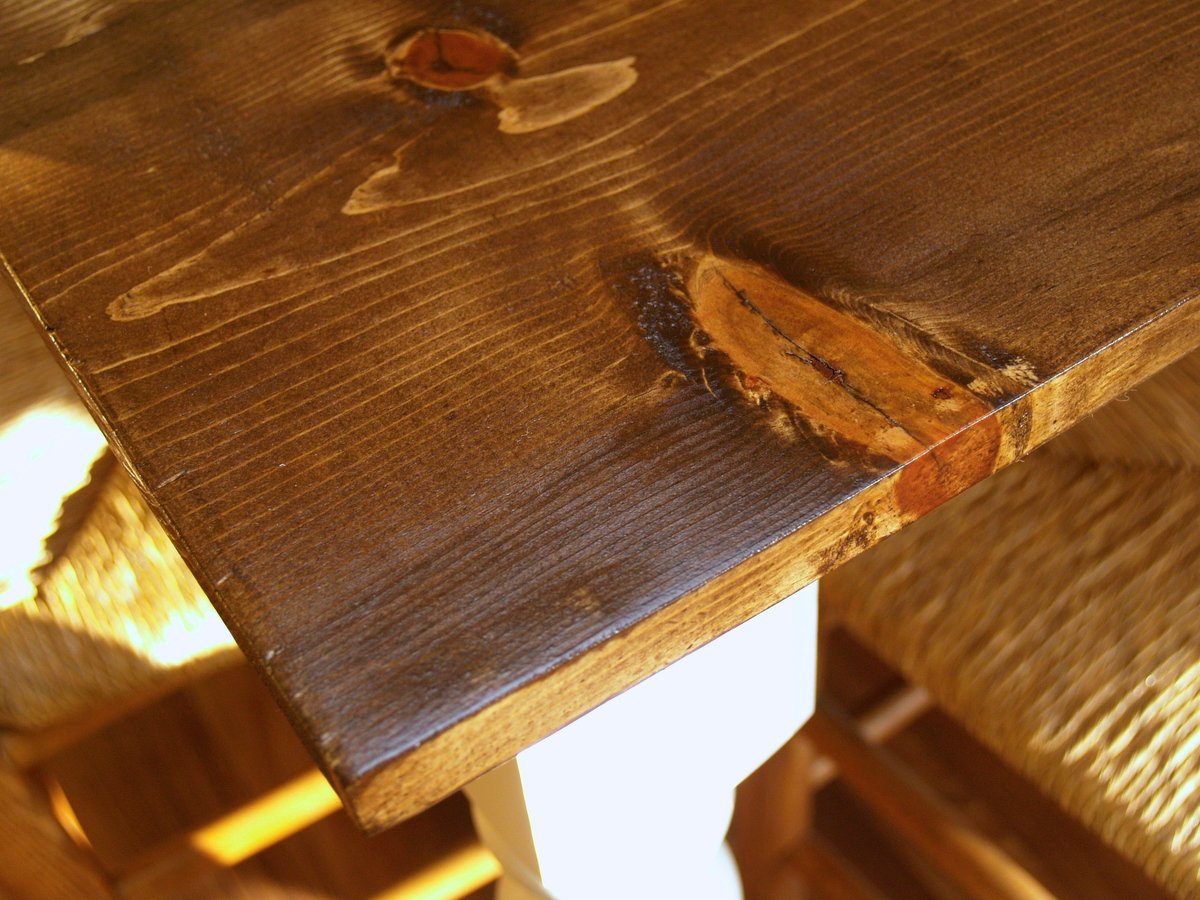
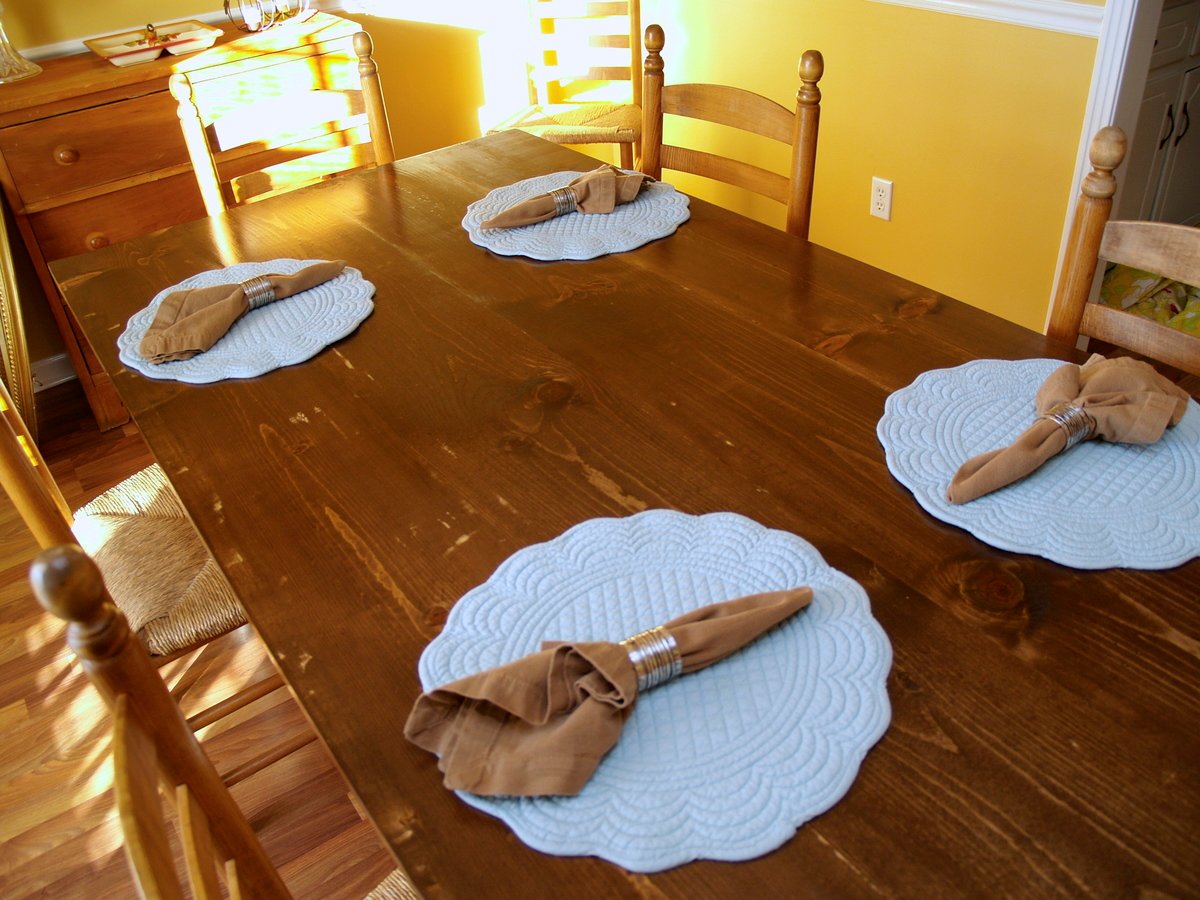
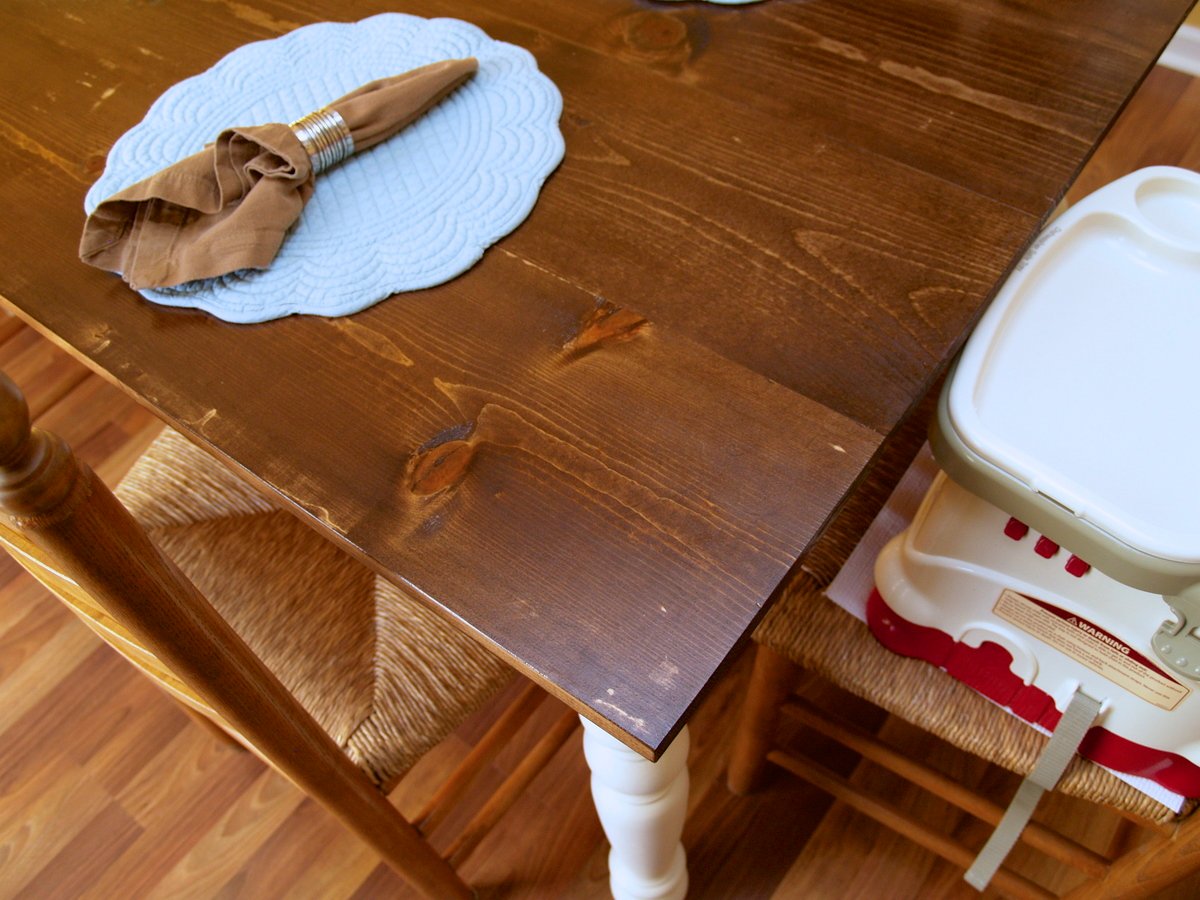
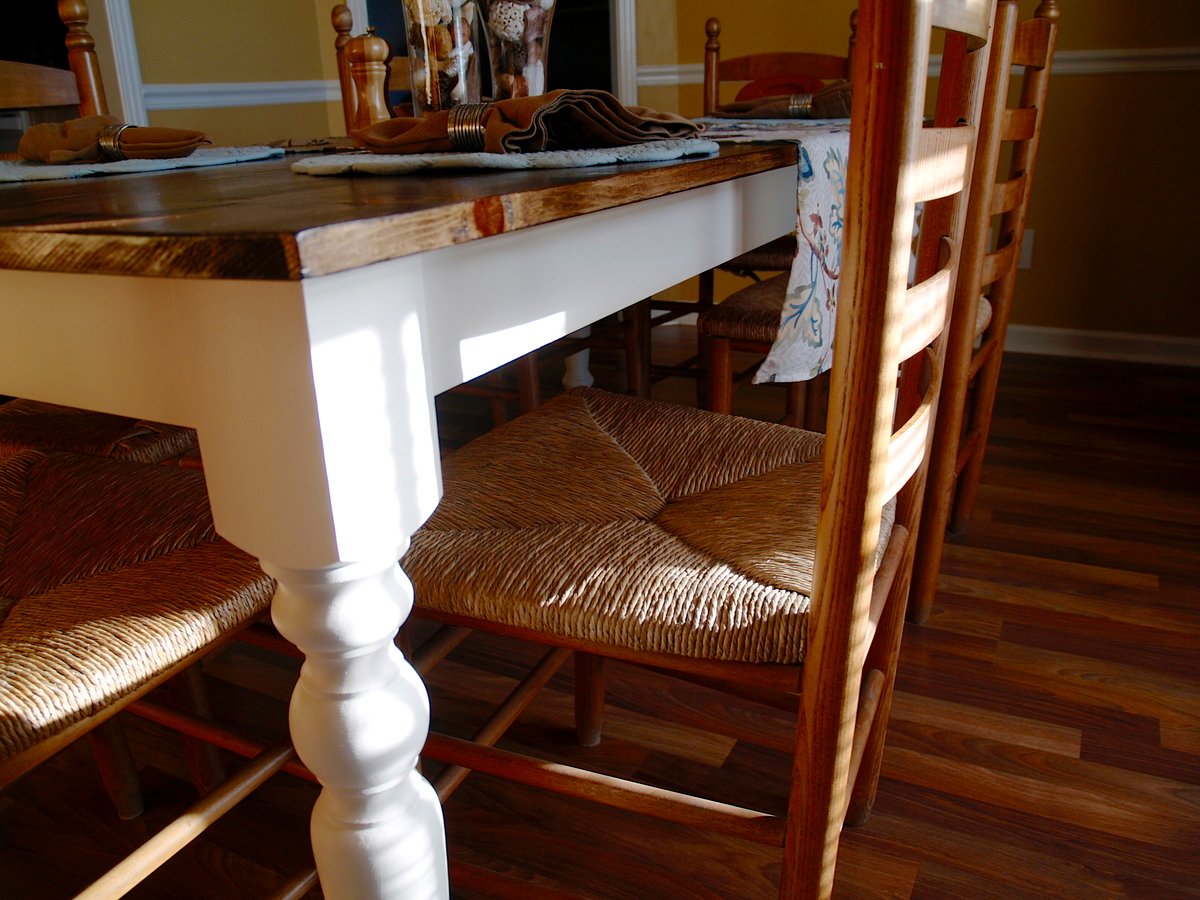
1. Sand top completely first using coarse 80 grit and then fine 220 grit sandpaper with electric sander (we used Porter & Cable square orbital sander from Lowe's).
2. Wipe entire surface of table thoroughly using damp cloth. Let dry completely.
3. Apply wood conditioner to entire table using brush (we were lazy and only applied to the top). Let dry completely - overnight is best.
4. Apply special walnut stain evenly to tabletop using brush. Wipe excess using old cloth. Let dry completely overnight. Repeat this process until desired depth of color is achieved (we applied two coats).
5. Lightly hand-sand top with 220 grit sandpaper to prep surface before each polyurethane coat for better adhesion. Clean surface with damp cloth after each sanding and allow to dry before poly. Repeat this process as needed for durability. (We applied only two coats).
Painting Base:
1. Apply two coats of Antique White in satin finish using angle brush. Let dry in between coats.
